




By Kierra Koeber
On a chilly day in January, students in the Children 1st program meet at the St. Anne Catholic Church pastoral center in south Wichita to fill backpacks intended for the homeless with food, hygiene supplies and handcrafted messages of hope.
As the middle-schoolers find their seats, Children 1st executive director Kathleen Webb talks about some important lessons she’s learned in life.
“Learn to say thank you to people,” she says. “It will surprise them. People don’t hear it enough. I want you to take the time right now to say thank you to the people around you.”
After the room erupts in expressions of gratitude, a small brown-haired girl raised her hand and asks Webb, “What motivates you?”
Webb smiles and says, “You do.” Children 1st is a 501(c)(3) nonprofit
organization serving children and families in Catholic schools and their neighborhoods. Webb has led the group since 2016.
Webb grew up in Bel Aire and earned a history degree from Newman University in 1979 before embarking on a 14year career in radio advertising. After being exposed to the work of several nonprofit organizations, she took a job with the ALS Association in Wichita.
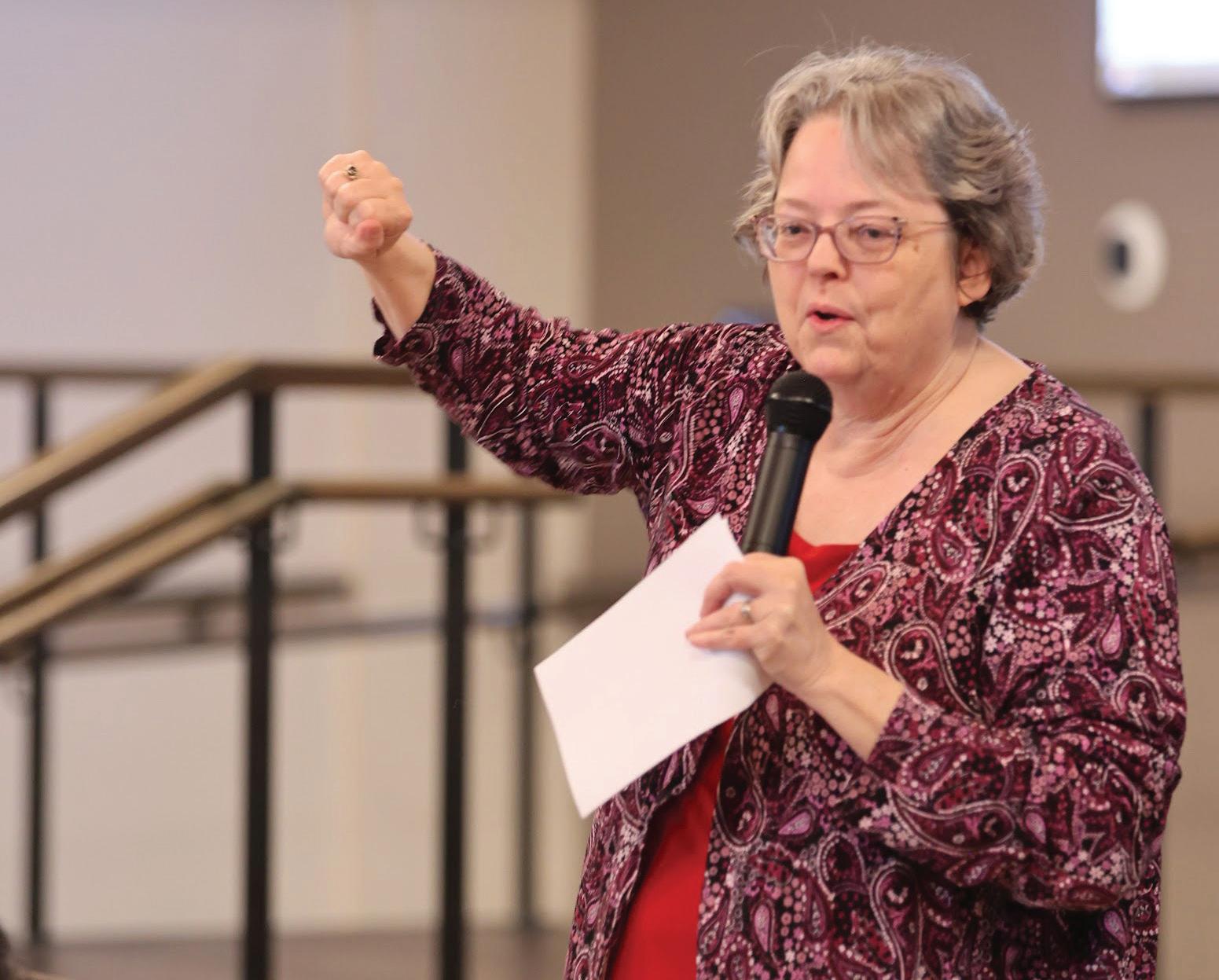
started
without that, I would have been in a really bad situation.”
If you are receiving duplicate or unwanted copies of The Active Age, please let us know by calling (316) 942-5385 or emailing joe@ theactiveage.com.The money saved on printing and postage helps us continue delivering The Active Age to people who wish to receive it.
By Margaret Britton-Mehisch
Appeals of Sedgwick County’s new property appraisals were running almost double the volume of previous years through mid-March.
County Appraiser Mark Clark isn’t surprised. About 87% of residential property owners and 73% of commercial property owners saw an increase in their property valuations for 2025. Homes experienced an average increase of 9%, and commercial property values grew by 11% on average.
When she wasn’t at work, Webb was busy as a single mother.
“Right after I became single with these children, it was a very scary time for us,” she said. “And luckily, I had parents who were able to help us. But
The experience inspired her and made her think: “How do we not only help someone in that crisis but get them stable and even get them out of poverty?”
When Webb’s daughter graduated
By Joe Norris CONCORDIA
— At one time, there were 4,000 Germans housed in a P.O.W. camp here. Only one nearly escaped.
We’re at the WWII German P.O.W. Camp Museum just north of Concordia. It’s a rural area of well-tended farm fields, looking much as it did in January 1943 when the U.S. Government bought the land from local farmers. Built in 90 days, the camp included more than 300 buildings, including a hospital, restaurants, a library, a post office, a fire department and barracks. The first trainload of German prisoners arrived in July.
“There was an outdoor recreation area here, surrounded by a barbed wire fence,” our tour guide, Barbara, says. “The prisoners played soccer there. One day, a prisoner laid down in a depression in the ground and covered himself with weeds and grass so he couldn’t be seen. He waited until dark, then crawled through the fence and walked 15 miles up the road to Belleville. He’d
Residents had until March 31 to fill out an appeal form and file it with the county. Weeks ahead of that deadline, Clark said he knew his office would be busy with appeals this season.
“I’ll be honest with you, I thought it’d be a little higher,” Clark said of the number of appeals.
See Appraisals, page 6
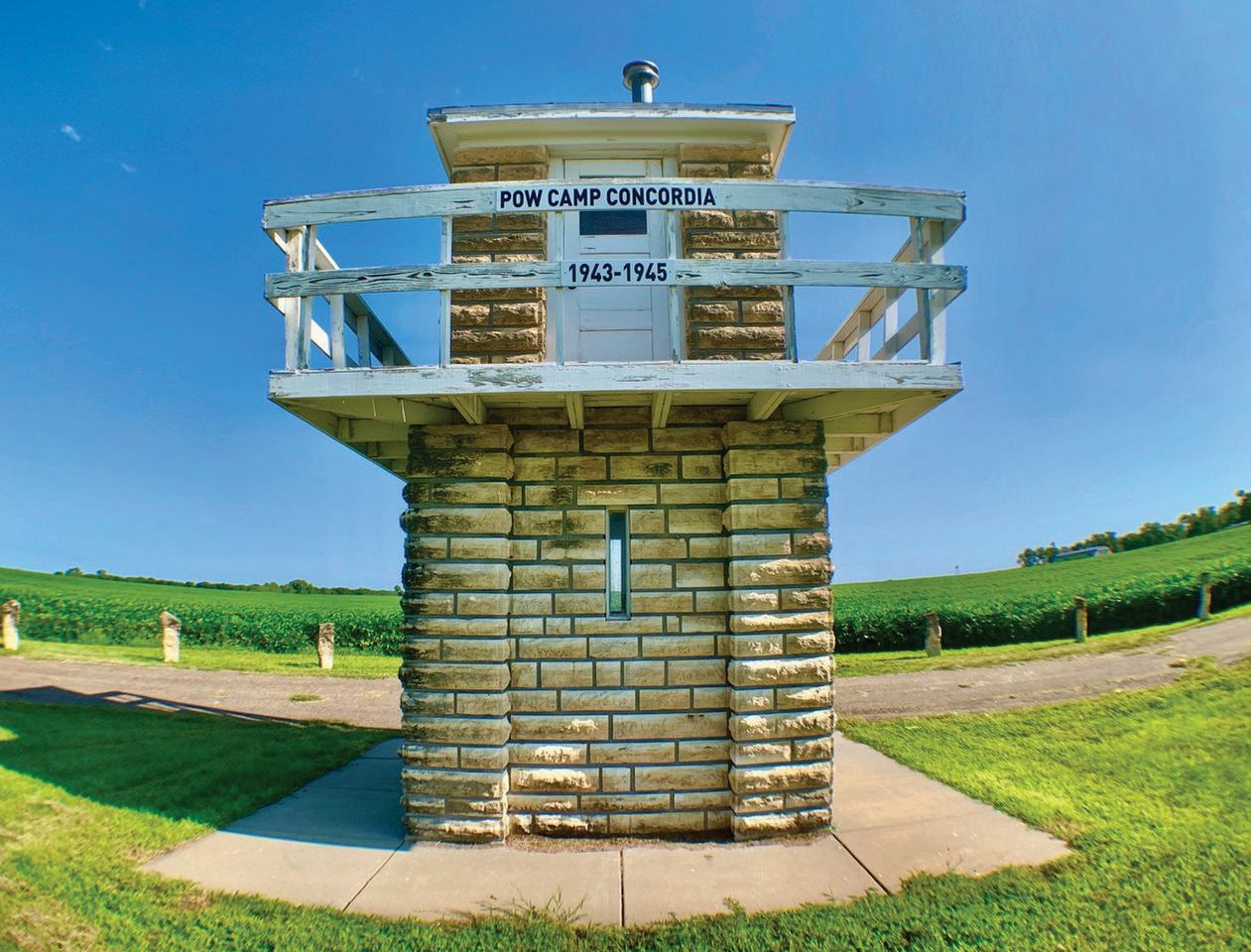
A guard tower is one of few structures remaining from the World War II P.O.W. camp in Concordia.
somehow obtained a train ticket, but he was a little early. So he went into the cafe to get a cup of coffee while
See Concordia, page 8



Library book sale
Get a bag of books for a fiver at the Friends of the Wichita Library sale
Saturday, April

5. The sale will be held from 10 a.m. to 2 p.m. at the Advancing Learning Library, 711 W. Second St. Book lovers can either buy a FWPL cloth tote bag and fill it for $10 or bring a previously purchased FWPL bag and
fill it for $5.
A preview sale for FWPL members is set for 5-6:30 p.m. Friday, April 4. FWPL memberships can be purchased at the event and are also available online at wichitalibraryfriends.org/shop Proceeds benefit the Wichita Public Library.
A north Wichita tradition — meatless Mexican food prepared by parishioners at Our Lady of Perpetual Help Catholic Church — is back on Fridays through April 11. Cheese and onion enchiladas, potato tacos, chile

Your Home Ready To Sell!
Carpet Cleaning Home Improvement/Repairs Landscaping
Estate Sale for more information contact



rellenos and more are available for dine-in or carry-out from 5-7 p.m. The church is located at 2409 N. Market.
AUGUSTA — Augusta United Methodist Church will offer a program on small-town and rural mental health on Sunday, April 6. The presenters are a member of the Grange and a school counselor. The event stars with a light lunch at noon, with the program to follow. Call the church office at (316) 775-1116 to reserve a place.
Spotlight on portraits
Portraits from the collection of the WichitaSedgwick County Historical Museum will remain on display throughout the year, including this fun one. The museum is located at 204 S. Main and is open Tuesday-Sunday. Visit wichitahistory.org for more museum events.





EL DORADO — Butler County residents can learn about services and opportunities for older residents and caregivers — and have plenty of fun — at the annual Butler County Spring Fling Senior Resource Fair on Wednesday, April 30.
Admission is free. The fair will be held from 9 a.m. to 2 p.m. at the Civic Center, 201 E. Central, and Community Building, 206 N. Griffin. A wheelchair-accessible shuttle and golf carts will run between the sites.
The fair, which is Butler County’s largest senior event with about 100 booths, has a 1960s theme this year.
There will be a free photo booth and T-shirts at the Civic Center plus health screenings, document shredding and a gift certificate giveaway at the Community Building.
Monterey lunches, including a drink and dessert, will be sold for $8 to raise money for the Rose Hill Senior Center and R.I.S.E. (formerly the Butler Homeless Initiative). The fair’s primary sponsors are Homestead Living and The Active Age.
For more information, contact Brenda or Crystal at 316-775-0500 or 1-800-279-3655, or email blouthan@ bucoks.com or cnoles@bucoks.com





Join us as renowned artists take the stage in Wichita!
Tuesday, April 22 – Jazz in the Round
Wednesday, April 23 – Donna Tucker & the Delano Jazz Orchestra
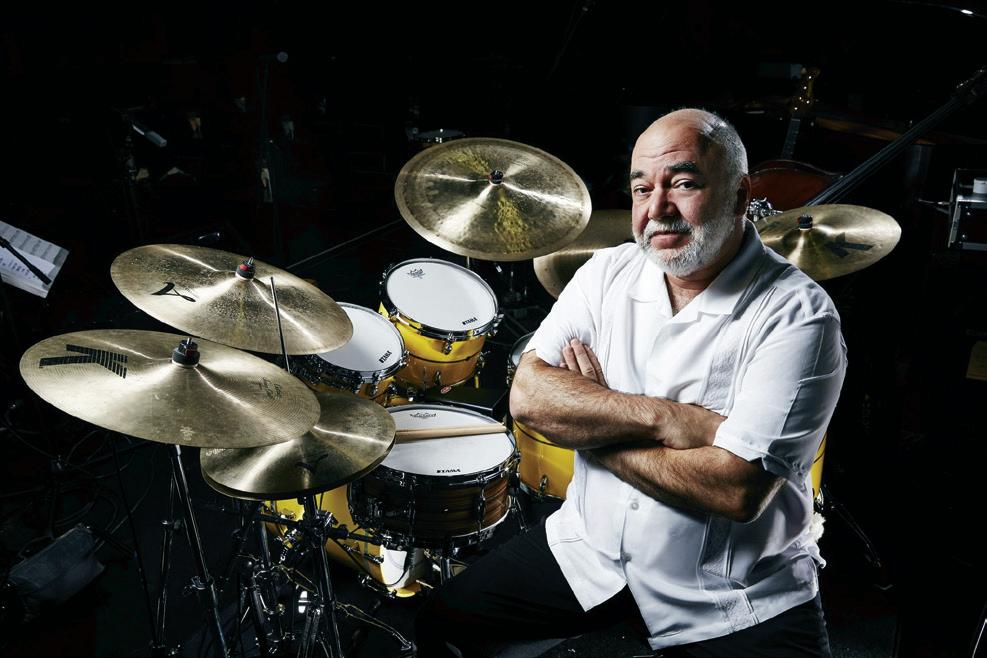

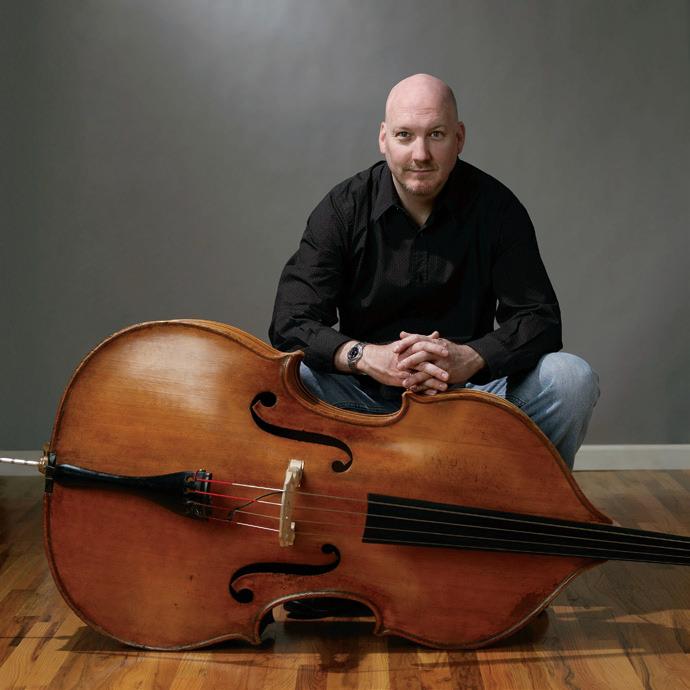

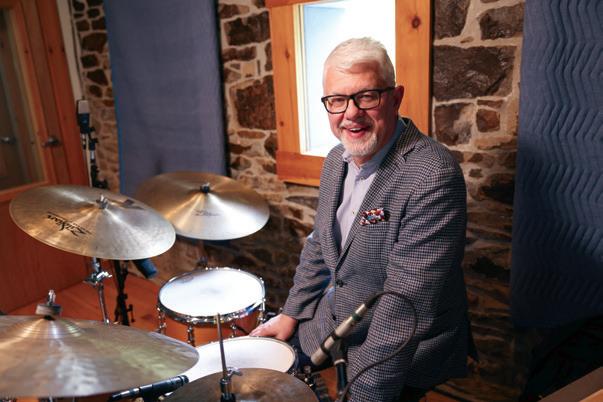
Get your tickets today at

Thursday, April 24 – Peter Erskine with Alan Pasqua & Sco Colley

Saturday, April 26 April May Webb & Randall Haywood Ma Wilson’s Good Trouble



Kay Beauchesne
By Patti Sullivan
We’ve all been around long enough to have developed skills for dealing with change. It’s a necessary part of life. And luckily, we Kansans are known for our resilience. It will come in handy as we cope with the changes and uncertainty in today’s world.
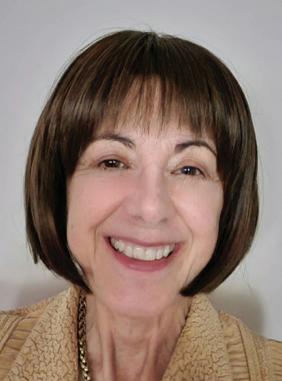
We at The Active Age are equally affected and concerned. Will our federal funding — a small but important part of our revenue — be eliminated? Will our advertisers be affected? Will the price of production, mailing and overhead continue to increase? Will our donors realize that we need them now more than ever?
We are a nonprofit organization, so we are not trying to maximize profits, but we do need to break even or a little better to keep operating.


Today, there is great debate about how international trade should be conducted, but everybody agrees that supporting local businesses and organizations is good for the community. The Active Age is based in Wichita, printed in Valley Center and distributed throughout Butler, Harvey and Sedgwick counties. The vast majority of our stories are about people, events and issues in this area. Most of our advertisers are local businesses. Recently, we have had to take a close look at our situation. One thing is certain: We can’t do it without you. Support comes in two ways. First, please patronize our advertisers. And, when you do, let them know that The Active Age is where you learned about them. In tough times, we lose advertisers who cannot justify buying ads if they don’t see results, and who
can fault them?
Secondly, we need your support in the form of the plain old American greenback. Our donations are not up to last year’s level, and we are naturally concerned by the trend. Maybe you’ve
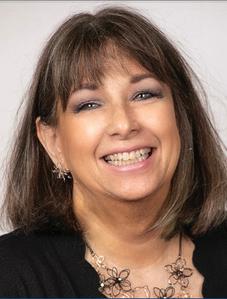

316-684-5212

This QR code will take you to The Active Age’s secure PayPal donation page.

thought, “Gee, I should send them a check,” but just haven’t gotten around to it. Now, my friends, would be the perfect time.
Patti Sullivan is a member of The Active Age’s volunteer board of directors. She can be reached at pmsullivan121@ gmail.com


Active Age, published the first of each month, is distributed in Butler, Harvey and Sedgwick counties.
subscribe, call 316-942-5385, write The Active Age or visit theactiveage. com. Donate via our
Advertising Manager: Teresa Schmied teresa@theactiveage.com
Business Manager: Tammara Fogle tammara@theactiveage.com

From Page 1
The median sale price for a home in Sedgwick County increased from $243,200 to $250,500 between 2024 and 2025.
During a presentation to the Sedgwick County Commission, Clark spelled out a variety of factors that sent property values up.
Sedgwick County, like markets across the nation, continues to feel the effects of supply chain issues, a labor shortage in construction and trade industries and inflation. Those factors are driving up the costs of building a home.
On top of that, federal interest rates and what Clark calls the golden handcuff effect — where homeowners feel chained to a property because it came with a low-interest rate mortgage — are keeping more people in their existing homes. Combined, these circumstances increase scarcity in an already tight housing supply moment and are driving up sale prices.
These national factors are colliding with a local issue. The Kansas Department of Revenue runs a check on appraisers across the state each year to make sure that their appraisals generally match the actual sale value of homes and properties. Appraisals are required to be somewhere between 90% and 110% of the actual sales price of a property to be considered in compliance.
Because the county was not recently in compliance, the state required it to increase valuations of property.
Baty said he knows these explanations offer little comfort for some residents. He said he’s heard in “hundreds of emails and messages and
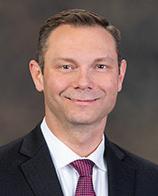
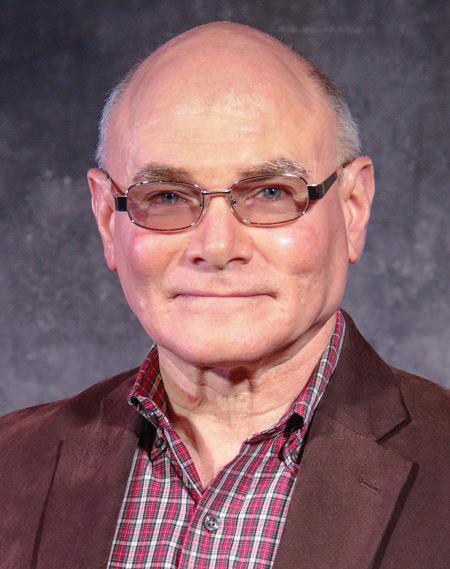
phone calls” about how appraisals are landing with households.
“There’s a lot of frustration,” Baty said. “People are concerned. They’re concerned because typically higher property valuations lead to higher property taxes and higher property insurances, and people are really feeling the squeeze.”
Baty said he’s not against seeing property values increase, but he was hoping for more “measured growth.” Baty said he was particularly concerned about how year after year of nearly double-digit increases impacts seniors and those on fixed incomes.
Last year, 60% of residential property owners saw an increase in their property appraisals. In 2023, 80% of property owners saw an increase. Appraisal values rose on average 8% in 2024 and 10% in 2023.
“These individuals are being priced out of their homes for nothing that they are doing,” Baty said.
“The path we’re on right now is not a path of sustainability, and people are really hurting,” Baty added. “I think we’re seeing diminishing returns in our community.”
Baty said constituents would likely see Sedgwick County government lower its mill levy rate again in the coming budget season. Though he recognized that Sedgwick County government has jurisdiction over only so much of residents’ tax bills.
The commissioner said of the roughly 170 taxing authorities in



Sedgwick County, county government is typically only responsible for about 20% of residents’ total property tax bill.
Baty applauded the Kansas Legislature for making property tax reform a priority during this session, calling out two efforts in particular: one that would cap the amount of property tax dollars that could be levied by a taxing authority and another that would cap the amount property valuations can increase.
The first proposal, House resolution 2396, was passed by the House and is being considered by the Senate. The second proposal, Senate concurrent resolution 1603, has been passed by the Senate and is being considered by the House. Both would amend the state constitution if passed.
Baty said he was in favor of the first proposal but not the second. Baty said he did not believe “government should be involved in placing some sort of manipulative cap on our assets” and that the true pain point for residents was property taxes, not property valuations.
Both Clark and Baty said that they want residents to feel empowered to make use of the property appraisal appeal process. Clark said his office tries to make appeals as accessible as possible by handling them in person, by phone or through a new online portal.
Most years, appeals are filed for about 2% — or 4,200 — of county parcels. Clark said his office was on track to have almost double that amount this year.
Typically, about 50% of residential appeals are successful. Last year, successful residential appeals resulted in about an $18,900 decrease in the appraisal. Successful commercial

appealers saw their appraisals drop about $45,000 on average as well.
If an appeal doesn’t work out, Clark and Baty suggested that residents look into property tax relief programs. The Kansas Department of Revenue offers three relief programs that each have an April 15 application deadline.
The first program is a homestead refund program for certain property owners with a household income of less than $42,000 and a home valued less than $350,000. This program offers up to $700 in property tax refunds.
A tax relief program for lowincome seniors runs under the same act that established the homestead refund. Known as SAFESR, this program will grant a refund of up to 75% of the on-time property taxes paid by senior residents with a household income of less than $24,500 and a home value of up to $350,000.
The final program offered by the state is for seniors, disabled veterans and surviving spouses. Called the SVR program, the state will refund qualifying residents the property tax increase on their homes.
More information about each of these programs can be found at KSrevenue.gov/perstaxtypeshs.html.
Margaret Britton-Mehisch is a reporter with the Wichita Journalism Collaborative. She can be reached at megbm@kmuw.org




From Page 1
from college in 2010, mother and daughter looked at a list of organizations that were about to lose their nonprofit status and focused on Children 1st. It had been launched in 2000 to help low-income students attend the public or private school of their choice but had become dormant when its founder became ill.
Webb and her daughter, Amber Beck, transformed the organization into a STEM (science, technology, engineering and mathematics) program for girls and ran it until 2016 when Amber decided to change careers. Webb then transformed it again, inspired by the financial hardship she had witnessed living near St. Patrick Catholic Church in north Wichita. The goal: breaking the cycle of poverty by helping children and their parents.
Today, Children 1st is active at St. Patrick, St. Anne and five other Catholic schools in Wichita, plus Catholic schools in Haysville, Parsons, Independence, Chanute, Coffeyville, Fort Scott and Hutchinson.
Children 1st operates four programs:
• Garden to Kitchen is a United Way-funded project consisting of three education gardens and a teaching kitchen. The aim is to help children become self-sufficient by teaching them how to grow and cook their own meals. The project offers an annual month-long summer camp at two Wichita sites to which both neighborhood kids and Catholic school students are invited.
• Brighter Futures connects Catholic schools with social workers

to provide individual and group counseling for students. This project also encompasses the Ambassador program, a career exploration program preparing middle school students for the future through service-based learning projects such as organizing food banks and the backpack-filling event at St. Annes.
Ambassadors attend talks by professionals in various careers and learn about college by going on campus tours and hearing first-generation WSU students speak about their experiences. Annual meetings are held for the Ambassadors’ parents to learn about college and savings plans. In the future, Webb would like to expand the Ambassador program to focus more on college preparation.
“Middle school is a great age to talk about careers and higher education,” she said. “High school is almost too late because students can
start earning college credits and should have knowledge about their career path already.”
• Project Starfish helps Catholic school children experiencing homelessness and poverty by providing families with food, coats, shoes, school supplies and Christmas presents. Project Starfish also offers classes designed to help parents find jobs and handle their finances. This facet of the project is called Bridges out of Poverty.
“Project Starfish is really helping low-resource parents with employment,” Webb said. “They take a class called Getting Ahead in a Just Gettin’-By World. It’s a national curriculum, and we hope to add someone who’s going to do home ownership and credit repair (instruction). So it’s a complete continuum of helping someone leave poverty.”
According to Webb, one person
who took the course paid off $20,000 of debt in one year and another started her own business.
• Journey Home works with families who are homeless or fleeing domestic violence. Children 1st has an arrangement with a hotel to give people a room for up to four weeks while they search for housing.
“We had one woman fleeing domestic violence, and because she was living in her car, DCF had put her children in a respite care program,” Webb said. “On a Wednesday night we put her in our hotel program, and the very next day DCF brought her children to her.”
In 2023, 15 homeless families secured housing, and 19 families who were at risk of homelessness received support through Journey Home.
In addition to Webb, Children 1st employs 25 mental health professions, educators and social workers on a fullor part-time basis.
But it relies on volunteers for many supportive roles. Children 1st gets volunteers from the AmeriCorps and AmeriCorps Senior program, which offer a stipend in return.
“I’d just like to encourage (Active Age) readers to look at that AmeriCorps program because it’s a great way to volunteer with some perks,” Webb said. “It’s a great way to make a difference, but not work full-time, but still have the structure of work.”
Those interested can email Children1st@children!stks.org or call (316) 303-4083.
Kierra Koeber is a recent graduate of Emporia State University who intends to pursue a master’s degree from Wichita State University.
The new Wichita State University Retiree Association is up and running and looking for more former WSU employees interested in joining. There’s no charge, and retired faculty and staff from any department of the university are welcome.
“The basic purpose of the retiree association is to keep people connected to the university and be responsive to their needs for social interaction, intellectual stimulation and promoting their development,” said Lou Medvene, a former WSU psychology professor and member of the association’s planning committee.
The group has several regularly scheduled events, including:
• Monthly brown bag lunches with presentations by faculty and administrators about current topics. These brown bags have been
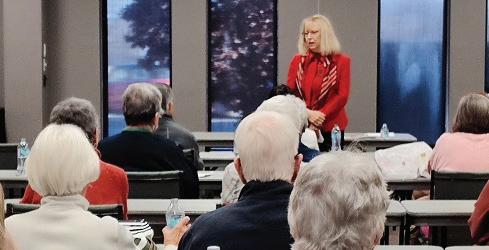
Wichita State professor Alicia Huckstadt gives tips on healthy living during a brown bag lunch organized by the WSU Retiree Association.
well attended and have offered opportunities to learn and to socialize, Medvene said. On April 14, saxophonist and associate professor Jim Pisano will talk about WSU’s jazz program and upcoming concerts.
• A monthly Coffee and Conversation hour, which provides an opportunity for old friends and new
ones to connect over coffee.
• A monthly book club.
It’s hoped that additional special interest groups will form, Medvene said.
Anyone who officially retired from WSU is automatically a member of the association. Members get free campus parking, health and fitness options and discounts on dining and services. They can also get a Shocker ID card for access to more resources around the campus and Wichita area. Members are allowed to bring guests to events.
Wichita State President Rick Muma created the association in late 2023, not long after the university joined the Age-Friendly University Network.
“A lot of universities have retiree associations,” said Rosemary Wright, a senior research scientist who works
with Muma. “They’re all very different. Some are faculty only. Some are random social events. It was really important that our association be a program for everyone.”
The association held an election in March to create an executive board, with Marcia Stevens being named presidnent, and it will hold a meeting in April to introduce the officers and create a more formal organization.
The association has reached out to about 800 WSU retirees but organizers know there are many more.
The association has a Facebook page, newsletter and website — wichita.edu/about/retiree_association — where members can keep up with events and other activities. To get on the association’s email list, email wsura@wichita.edu.
From Page 1
waiting for his train. That coffee was his undoing.”
The waitress brought the coffee to the escapee’s table and said, “That’ll be a nickel.” When the waitress realized he didn’t understand the term nickel, she alerted the sheriff. The escapee was quickly transported back to the Concordia Camp.
“But most of the prisoners didn’t really want to get away from here,” Barbara says. “They were treated well and fed well — probably better than back in wartime Germany. One of the former prisoners wrote us a letter after the war, saying that the time he spent here at Camp Concordia were the best two years of his life.”
The museum, located in one of the camp’s warehouses, is packed with WWII artifacts and memorabilia, including German military uniforms and medals, U.S. Army vehicles and artwork created by some of the prisoners. Barbara is a volunteer tour guide, and her grandfather was one of the local farmers who employed the German prisoners as farmhands.
“Farmers were short-handed during the war because so many local boys were serving in the U.S. military,” she says. “So farmers like my grandfather would call the camp and tell them how many workers they needed for the day. An army truck would bring that many prisoners to the farm in the morning, then pick them up again in the evening.”
The prisoners were paid by the farmers for their work. They got half their pay up front in the form of coupons or script, which they could spend at the camp commissary. Then they were paid the rest in American dollars when they went home.
“One evening, the truck was bringing a load of prisoners back to the camp after a day at the farm. When it stopped at the intersection of Sixth and Lincoln in downtown Concordia, two prisoners just jumped out,” Barbara says. “The guard didn’t notice them missing until he got back to the camp, so he turned around and headed back to get them. He found them walking along the road, heading back to camp on their own. They told him they weren’t trying to get away. They just wanted to stop in town for a cold beer.”
The museum will hold a Victory Day celebration May 5 to mark the 80th anniversary of Camp Concordia’s closing and the 10th anniversary of the museum opening.
Otherwise, the museum is open by appointment. Call (785) 243-4303

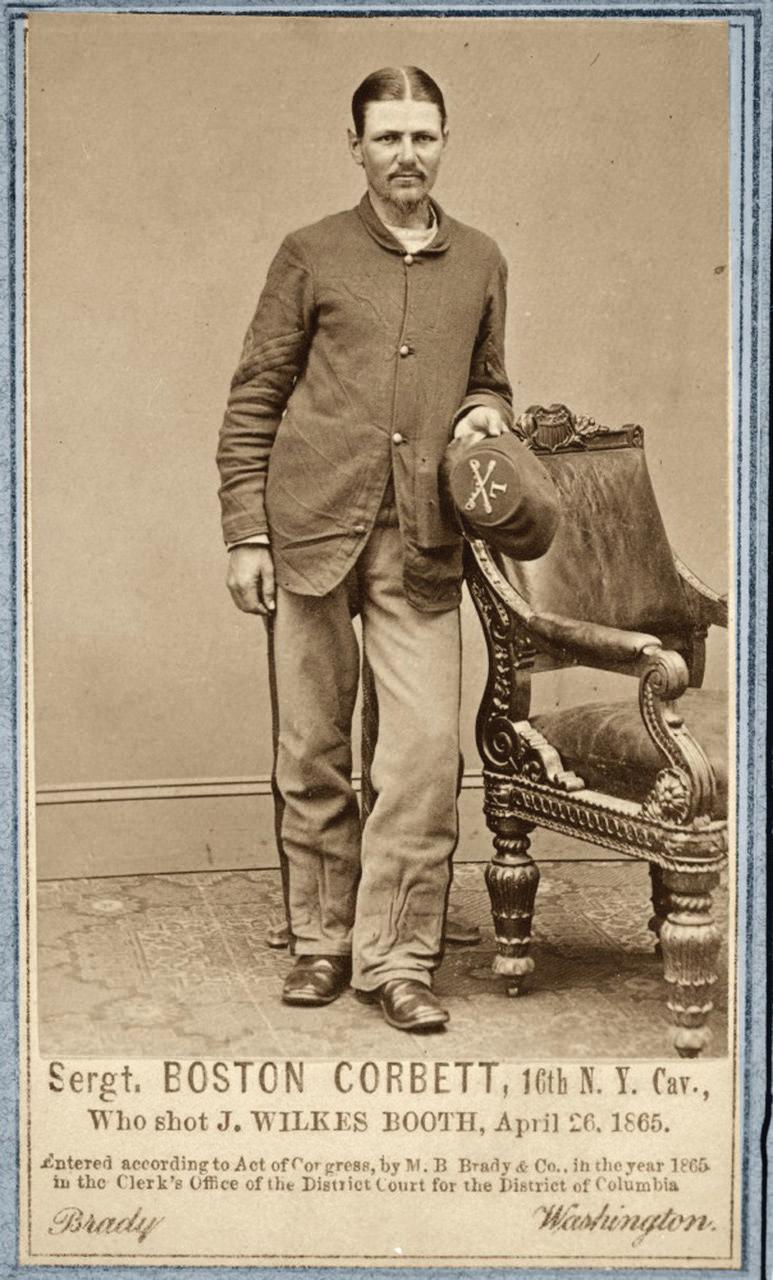

a couple days in advance to schedule a tour, and Barbara or another volunteer will meet you at the museum. A donation of $5 per person is suggested.
As fascinating as the museum is, Concordia’s best-known attraction is probably the National Orphan Train Complex, dedicated to the preservation of stories and artifacts of those who were part of the Orphan Train Movement from 1854-1929.
The movement began in New York, where thousands of children ended up in orphanages or living on the streets. The Children’s Aid Society founded the Orphan Trains to transport these children to small communities in the Midwest, where they could become part of loving families. Arrangements were made with communities like Concordia.
Mabel Gumersell Erickson, who rode the Orphan Train to Missouri in 1901 at the age of five, later recalled the experience in a letter displayed at the museum.
“With our names pinned to our coats and carrying our own little bundle of ‘worldly belongings,’ we went to live with the ones who had chosen us,” she wrote. “In my bundle, I had a rag doll, a small wooden china man and a tin elephant, which I called Elky. He looked as though he had been stepped on many times. I took these treasures to bed with me every night.”
Mabel’s toys are displayed at the museum. It’s impossible not to be touched by the stories of these children. Some found loving families. But some farmers were just looking for cheap labor. Others had even darker intentions.
A completely restored 1917 Union Pacific Depot is part of the National Orphan Train Complex, as well as an
original Orphan Train passenger car. One imagines it filled with children, their faces pressed to the windows as they saw wide-open spaces for the first time.
Then there’s a lesser-known Concordia attraction — an obscure spot on the prairie that was once called home by the man who killed John Wilkes Booth.
Thomas H. Corbett was a hat maker known for his eccentric behavior. Historians theorize that his mental issues may have been the result of mercury nitrate fumes he inhaled as part of his profession. Hallucinations and psychosis were common among hat makers back then, hence the expression “mad as a hatter.”
Corbett took to excessive drinking after the deaths of his wife and child but gave it up after meeting a street preacher in Boston. He got sober, changed his first name to Boston and became a street preacher himself.
In 1861, Corbett joined the Union Army. Four years later, in April 1865, his Virginia regiment was sent in pursuit of John Wilkes Booth after the assassination of President Lincoln. The regiment surrounded Booth and one of his accomplices in a Virginia tobacco barn. The soldiers set the barn on fire, attempting to drive Booth from the building and capture him alive. But Boston Corbett saw Booth through a crack in the barn wall and fatally shot him with his Colt revolver.
Many Americans saw Corbett as a national hero. But some saw him as a glory seeker who disobeyed orders. After his discharge, Corbett returned to work as a milliner but was fired from multiple jobs because he’d begun brandishing his pistol at people whom he deemed suspicious. For a while, he toured the country as “Lincoln’s Avenger,” giving lectures about the night John Wilkes Booth was killed.
In 1878, Corbett moved to Concordia, where he acquired a plot of land through homesteading. Some say his home was a dugout while others claim it was simply a hole in the ground.
In 1887, Corbett was hired as assistant doorkeeper of the Kansas House of Representatives in Topeka. But a few days later, a judge declared him insane after he chased some men from the statehouse with his revolver. A year later, Corbett escaped from the Topeka Asylum for the Insane on horseback and was never heard from again.
In 1958, the local Boy Scout troop built a simple monument to him at the side of a rutted dirt road. It’s still standing, but just barely, and the hole has long since been filled in. But it’s still fun to stop and see the place where “Lincoln’s Avenger” once lived.
Joe Norris is a writer and former Wichita marketing executive. He can be reached at joe.norris47@gmail.com


By Celeste Racette
A municipal friendship 80 years in the making gets renewed this month when visitors from Orleans, France, arrive for an event-packed visit. The relationship goes back to August 1944, when the Kansas Regiment of the 137th Infantry 35th Division helped liberate Orleans from Nazi occupation.
Located about 80 miles southwest of Paris, Orleans had been turned into a major logistical hub by the Germans. Over three days of fighting, 17 Kansas soldiers were wounded and seven were killed. Mines planted by the retreating German army had to be detonated and the water supply restored.
After the war, the United States sent a Friendship Train to France with 4,000 tons of foodstuffs aboard. Two years later, France responded with the Merci Train — with a boxcar for each of the 48 states then in the U.S. filled with gifts of historical or artistic significance. The Kansas Merci Boxcar is on permanent display in Hays, Kan.
In 1949, official visits between the two cities began. Three years later, Wichita schoolchildren gifted Orleans a Chance Manufacturing miniature train which still puffs away in that city’s Pasteur Park.
In 1964, the U.S. State Department sponsored Wichita’s visit to Orleans, with transportation
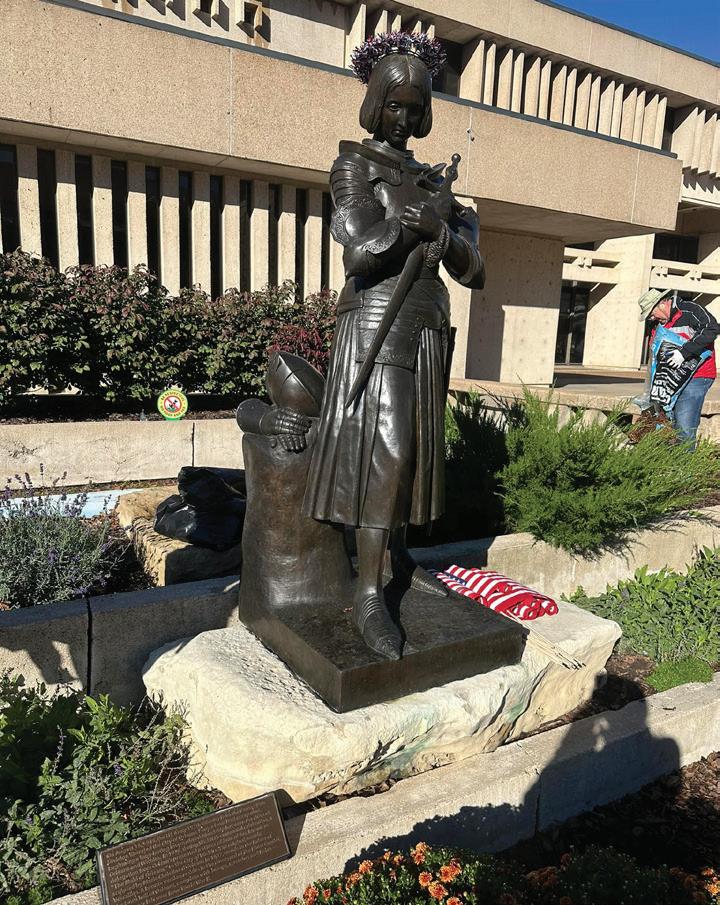
provided by military aircraft. Mayor (and my father) Vincent Bogart, a former WW II Army Air Corp fighter pilot, several city commissioners and two former members of the 137th Infantry Regiment attended the 20th anniversary celebration of the liberation.
In 1970 — the City of Wichita’s centennial anniversary — the mayor of Orleans traveled here to present a statue of Joan of Arc, known as the

Maid of Orleans, to Mayor A. Price Woodard, Jr. A copy of the statue sits in front of the former downtown library while the original was recently reinstalled in City Hall.

In 1973, the Sister Cities program was started, and Orleans was paired with Wichita. (Our other Sister Cities are Kaifeng, China; Cancun, Mexico; Tlalnepantla, Mexico.) There have been student, musician and art exchanges between our cities along with numerous other gifts, including stained glass from the Cathedrale Sainte-Croix that sits outside Wichita City Council chambers. Black Bear Bosin presented Orleans with a copy of his Keeper of the Plains sculpture, and artists from the Mid-America All-Indian Center sent an elaborately beaded Native American headdress.
Wichita will host eight Orleans visitors April 4-12. They will experience the Flint Hills, watch a gunfight at Cowtown, attend opening night of the Wind Surge season, tour Botanica gardens and visit the Frank Lloyd Wright Allen House, Carnegie Library Fidelity Bank, Wichita-Sedgwick County Historic Museum and Exploration Place. They will hear a performance of the New York Paramount Wurlitzer, see the restoration of a WWI plane at the Bleckley Foundation and listen to the Wichita Symphony Orchestra rehearse Beethoven’s Ninth Symphony. Shopping in Old Town, Bradley Fair, and Delano is part of the experience. Members of the nonprofit Wichita
Sister Cities membership
Individual, family and student memberships in Wichita Area Sister Cities are available. Members receive information about events and opportunities for travel. If interested, contact WASC President Celeste Racette at (765) 4916583 or by email: mcr112@yahoo. com. For more information on the Orleans visit, contact Kelly Harper at (316) 304-2198.
Area Sister Cities are hosting the guests in their homes.
Here’s a list of events that are open to the public, though there may be an admission fee. Please come by and say “bonjour.” Our visitors would love to have a conversation in either French or English, and several interpreters will be present.
• Sunday, April 6:
10 a.m. Laying of wreath at Joan of Arc statue, 223 S. Main 12:30 p.m. Tour Cowtown Museum with historian Dr. Jay Price
• Monday, April 7
10 a.m. “Kansas” shown in Exploration Place’s Dome Theatre
3 p.m. View Bleckley Foundation WW I plane restoration, 359 N. Mosley
• Tuesday, April 8
9 a.m. City Council meeting and Sister City proclamation, City Hall
1 p.m. Botanica gardens tour
3 p.m. Delano Clock Tower talk with Chisholm Trail historian Jack Kellogg
4 p.m. Reception at The Monarch
6 p.m. Wind Surge Riverfront Stadium Delano concourse for meet and greet
• Friday, April 11
9:15 p.m. Farewell reception at Nortons Brewing Co., 125 St. Francis Celeste Racette is president of Wichita Area Sister Cities, Inc.
Wichita is one of the two most budget-friendly cities in the country for shared or coworking spaces. That’s according to CoWorking Cafe, an online directory of those spaces. Here are some average montly rates.
Most Expensive
Santa Maria, CA — $300
Bremerton, WA — $300
Albany, NY — $250
Palm Bay, FL — $250
Least Expensive
Wichita, KS — $99
Greensboro, NC — $99
Deltona, FL — $107
Green Bay WI –– $119

By Dee Starkey
From its first downbeat in 1972, the Wichita Jazz Festival has been about two things: bringing jazz greats to Wichita and offering educational outreach to area school jazz programs.
The combination seems to have worked. The festival is now one of the nation’s oldest, trailing only a few, such as the Newport Jazz Festival and Monterey Jazz Festival, in longevity.
Its genesis was a newspaper column written by Ted Blankenship for the Wichita Beacon in which he floated the idea of starting a jazz festival here and asked readers to contact him if they were interested. Turns out, plenty were. Blankenship, who now writes a column for The Active Age, went on to serve as the festival’s first president.
“I thought we should involve the WSU Music Department, and the festival became a teaching thing as well as a festival,” Blankenship remembers. “That has always been the core of the festival.”
The first festival featured three days of college and high school performances, clinics and workshops. Organizers packed the closing program Sunday with big-name artists: Pat Metheny, Gene Harris, Clark Terry, Jay McShann, Marilyn Maye and Julian “Cannonball” Adderley. All events were held at Century II, then just three years old.
Despite that start, Blankenship said the festival faced difficulties in its early days. He credits the involvement and guidance of Terry, a trumpet

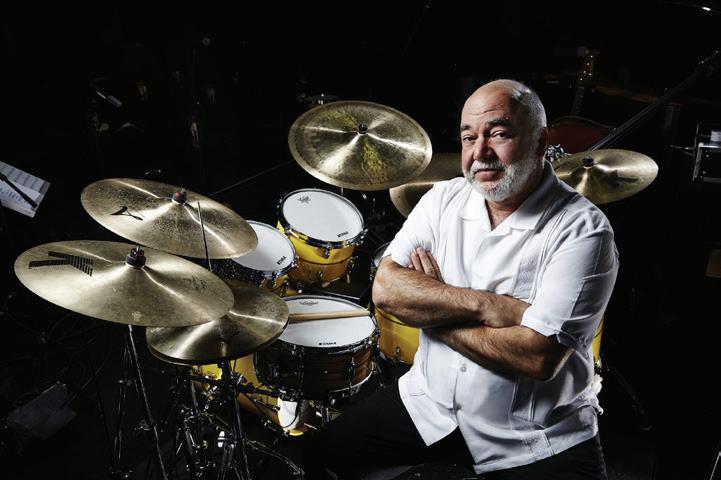

legend, with innovative ideas such as presenting an all-women jazz band made up of musicians from around the United States.
Throughout the 1970s and ‘80s, the festival gained recognition throughout the international jazz community by bringing world-famous performers to Kansas. Memorable headliners included Art Blakey, Chick Corea, Oscar Peterson, Ray Charles, Dave Brubeck and Doc Sevrensin of The Tonight Show band.
The pattern continued into the ‘90s, with appearances by the likes of Branford and Wynton Marsalis, B.B.
By Diana Morton
Christian Performance Theatre, Alvin E. Morris Administrative Center (AMAC), 903 S. Edgemoor. Charlie and the Chocolate Factory. Musical based on the famous novel by Roald Dahl. April 10 – 12. Visit cptict.org for ticket information.
Forum Theatre, at the Wilke Center, 1st United Methodist Church, 330 N. Broadway. Escape to Margaritaville, music and lyrics by Jimmy Buffett. Tully, part-time singer and full-time charmer, thinks he’s got life figured out until a beautiful tourist steals his heart. April 24 – May 11. 8pm; Tickets $34 – $44 each; 10% military discount and 1/2 price student tickets with a valid student ID. 316-618-0444 Mosley Street Melodrama, 234 N. Mosley. Hot Topic Time Machine by Scott Noah, followed by a new musical comedy revue. April 4 – May 17. Tickets, dinner, and show $36-40; show only $26-30. 316-263-0222 Prairie Pines Playhouse, 4055 N. Tyler Rd., Maize. A Party to Murder.
Clever mystery set during Halloween party. Tickets $44.95, includes dinner. Apri 4-26, 6 pm. 316-303-2037 or prairiepinesplayhouse.com.
Roxy’s Downtown, 412 E. Douglas, cabaret-style theatre. Company, witty, modern musical that explores the highs and lows of relationship in the big city. Doors open at 6:30pm; Show begins at 8:00 pm. March 26 – April 12. Tickets $40. 316-265-4400
Roxy’s Backwards fundraiser. Local stage favorites singing songs from roles they would never perform. 8 p.m. April 18; tickets are $55.
Wichita Community Theatre, 258 N. Fountain. Into the Breeches!, a comedy by George Brant. With a playhouse’s director and leading men off to war, their wives produce an all-female version of Shakespeare’s Henriad. April 24 – May 4, 8 pm with Sat and Sun matinees, 2 pm. Tickets $18 for adults, $16 for military/senior/students. 316686-1282
Contact Diana Morton at dianamorton12@sbcglobal.net
King and Mel Torme. Community and corporate support was strong.
In 1994, festival organizers helped clean up the dormant Orpheum Theatre for a concert which started the theatre’s long journey toward restoration. With some debt after the 1994 events, Music Theatre of Wichita proposed bringing the vocal group Manhattan Transfer to Wichita for a holiday concert presented by MTW and the Wichita Jazz Festival. Tied into the Wichita Chamber of Commerce annual banquet, and featuring the Wichita Jazz Orchestra and strings from the Wichita Symphony, over 5,000 people enjoyed that concert in Century II’s Convention Hall. MTW and WJF entered 1995 in good financial shape.
( WJF is the same age as Music Theatre Wichita, The Wichita River Festival and the Walnut Valley Fest in Winfield. There must have been
something in the water in 1972.)
The 21st century brought new challenges to all arts presenters in the form of changing consumer interests and digital media. The marathon Sunday events the festival had become known for became impractical. But the festival continued to present world-class artists and educational programming every April. Esperanza Spaulding, Joe Lovano, Bill Frissell, the Count Basie Orchestra and the Yellowjackets are some of the artists who’ve performed in recent years.
The festival has presented programs at the Cotillion, Broadview Hotel, Crown Uptown Theatre, Scottish Rite Temple, Odd Fellow Hall, Kansas African American Museum and many restaurants and clubs.
This year’s festival, to be held April 22-26, features as strong a lineup as it’s had in years.
Performers include jazz drum master Peter Erskine; Wichita favorites Donna Tucker and Matt Wilson with his Good Trouble quintet; and Newton native April May Webb, who recently won the Sarah Vaughan International Vocal Competition. Her band S.O.A.R (Sounds of April and Randall) features her husband Randall Haywood on trumpet, pianist Yoyai lkawa and Webb's two brothers, Jacob on bass and Nathan on drums. New York-based artists Pat Bianchi on organ and Dan Wilson on guitar will be part of the April 25 all-day activities at WSU.
For complete event and venue information, visit wichitajazzfestival. com/events.
Dee Starkey is the former owner of the Jim Starkey Music Center and a board member of the Wichita Jazz Festival.

By Nancy Wheeler
See if you can use these clues to name famously mysterious figures, objects and places from the past. The answers appear on page 17.
1. What North Carolina island colony was established by John White in 1587 — but all the colonists had disappeared when White returned three years later?
2. Stretching from Miami to
Bermuda to Puerto Rico, what area has seen the disappearance of numerous ships and aircraft?
3. What colossal Egyptian structures near Giza still pose questions about how the massive stones were transported, lifted and laid with tremendous precision?
4. What name has been given to the chalice purportedly used by Jesus at the Last Supper that became the subject of countless medieval legends



and quests?
5. What prehistoric stone monument on the Salisbury Plain in England still poses many questions about its use and construction?
6. What infamous London killer sent taunting letters to the media and murdered at least five women in 1888?
7. What 14-foot-long linen cloth marked with wounds consistent with crucifixion is still debated as being the burial cloth of Jesus?
8. Described by Plato as having a prosperous and advanced civilization, what mythical island supposedly sank into the ocean during a catastrophic event?
9. What 1872 vessel is famously known as “the ghost ship” because it was found in the Atlantic Ocean abandoned and adrift yet still fully provisioned and intact?
10. On what island did ancient Polynesian people move and erect 887 giant stone statues called Moai?
11. Despite centuries of sightings, searches and photographs, what infamous Scottish lake monster remains unidentified and unverified?
12. What is the name given to the massive Peruvian drawings of animals, plants and geometric shapes that are only visible from the air?


A walk isn’t just good for your body; it’s a simple, powerful way to care for your mind and soul. Physical activity, like walking, reduces stress, boosts mood and promotes overall well-being. Yet physical activity levels in the United States continue to decline, a trend threatening both mental and physical health.
Less than half of adults and fewer than 1 in 5 children in the U.S. get the recommended amount of physical activity needed for heart health,

according to the American Heart Association’s 2025 Heart & Stroke Statistical Update.
National recommendations call for children to get at least one hour of physical activity each day, but the latest statistics show less than 19% of children in the U.S. achieve that target. Meanwhile, less than half of adults get the recommended 150 minutes or more of weekly physical activity.
What’s more, according to data from a National Health and Nutrition Examination Survey, 1 in 4 U.S.
Providing Comfort, Support, & Peace of Mind for over 40 years
Your community non-profit hospice.
hynesmemorial.org • 316-265-9441

adults sits for longer than eight hours each day, which can have negative consequences on physical and mental health.
For decades, the American Heart Association has championed the importance of physical activity in communities across the country through events such as National Walking Day on Wednesday, April 2. These tips can help you understand how a brisk walk can make a world of difference for heart health and mental clarity.
Staying active is one of the best ways to keep your mind and body healthy.
The physical health benefits may be obvious, but research suggests physical activity can also help bring more joy to your life. According to the 2019 Physical Activity Guidelines for Americans, people who get the recommended amount of physical activity are less likely to experience
See next page







depression.
Regular physical activity enhances your mood, sharpens your mind, improves sleep and boosts overall wellbeing, all while reducing the risk of disease and depression and increasing both the quality and longevity of life.
Exercise as simple as a brisk walk can put a major spring in your step. It can even energize you to finish other tasks at hand, whether it’s cooking or running errands. Give your daily physical activity level a boost with these tips:
• Exercising outdoors is a great way to get moving. Spending time outdoors has been shown to reduce stress, promote a sense of belonging and improve mood. It’s even better if you can enjoy the sunshine outside, which can improve mood, boost your immunity and help you get some vitamin D.
• Invite a family member or friend along with you. It’s good for them, it’s good for you, and it’s good company all around.
• Instead of wondering if you’ll
move today, explore how you’ll move. A walk, a dance or a stretch all count.
Pets are part of your family, and they can help you get healthy together. Pets provide a fun reason to spend more time outside and get the exercise needed to reduce the risk of disease later in life.
Getting moving along with your pet adds more exercise to your routine, which means living longer, reducing risk of dying from heart attack or stroke, reducing risk of diabetes, reducing stress and even boosting your overall happiness and well-being.
Exercising with your pet can also mean enjoying more socializing. You may find yourself meeting other dog owners in your area on a walk or at the dog park.
Learn more about how simple habits like walking can support your overall health at heart.org/ MoveMore






• Is it difficult to read regular print in newspapers, magazines or books?
• Does your vision make it difficult to watch TV or recognize faces?
• Has your eye doctor told you eyeglasses can no longer be made stronger?
If so, call Envision for an appointment or schedule an education presentation in your senior living facility.

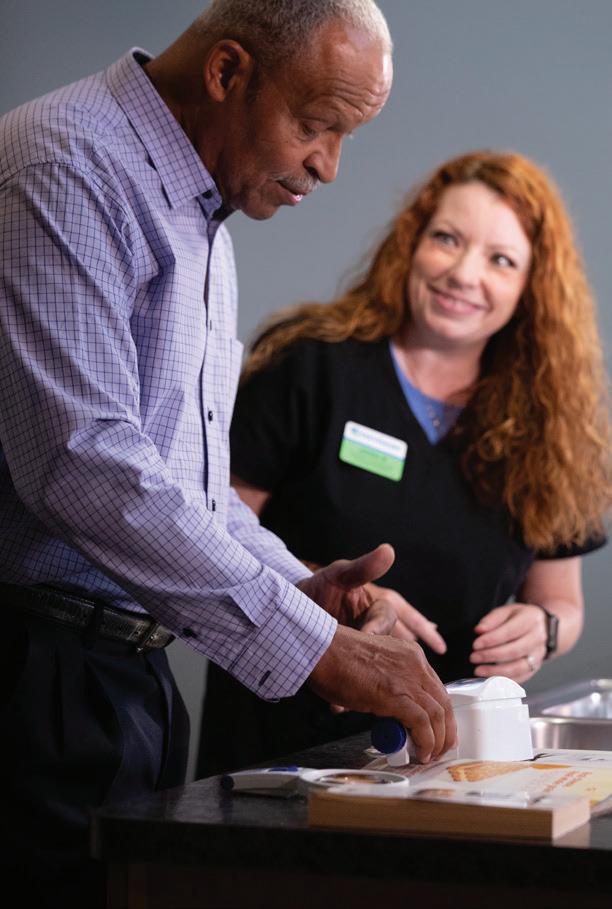

The skyrocketing price of eggs prompted one reader of The Active Age to send us this recipe for an eggfree chocolate cake, but not for that reason alone. She says her sister-in-law regularly makes this dairy-free cake simply because it’s delicious.
The cake is known by various names, including Depression Cake and World War II Cake. It doesn't call for ingredients such as eggs, milk and butter that were in short supply
during those times (although milk can be substituted for the water to make a richer batter).
It’s also been called Wacky Cake because some cooks mix it in the baking pan.
The King Arthur Baking Co. says it’s been one of its most requested recipes over the years. It was the company’s 2014 Recipe of the Year.
Whatever you call it, our reader predicts you’ll enjoy it.
Chocolate Pan Cake
1½ cups all-purpose flour
1 cup granulated sugar
1/4 cup unsweetened cocoa, Dutch-process or natural
½ teaspoon table salt
½ teaspoon espresso powder, optional
1 teaspoon baking soda
1 teaspoon vanilla extract
1 tablespoon cider vinegar or white vinegar
1/3 cup vegetable oil
1 cup water, cold
Directions:
Preheat oven to 350 degrees. Lightly grease an 8-inch square or 9-inch round pan.
Whisk dry ingredients together in a bowl. Whisk vanilla, vinegar, oil and water in a separate bowl. Pour wet ingredients into dry ingredients, stirring until combined. Pour bater into prepared pan.
Bake cake for 30 to 35 minutes or until a toothpick inserted into the center comes out clean. Serve cake warm from the oven.
Optional Icing: Heat 1½ cups semi-sweet chocolate chips with ½ cup halfand-half until the chips melt. If frosting cake, let it cool first. For non-dairy icing, substitute 1/3 cup cold brewed coffee or water for the half-and-half.
Wacky Cake Version: Measure all the dry ingredients into the prepared pan. Blend the ingredients together thoroughly with a fork or whisk and scoop out three holes, or indentations. Pour the vanilla into the first hole, the vinegar into the second, and the vegetable oil into the third. Take the cup of water and pour it directly over everything in the pan. Stir all the ingredients together with your fork until well blended. Finish and bake as directed.

With drought restrictions continuing into a new gardening season, the Sedgwick County Extension Master Gardeners are looking to help the community cope. The theme of their 2025 Spring Garden Fair is “Water — Every Drop Counts.
The fair will be held from 7 a.m. to 1 p.m. Saturday, May 3 at the Sedgwick County Extension Center, 7001 W. 21st. Admission to the familyfriendly event is free, and the first 200 visitors will receive a rain gauge.
You’ve probably seen them in action along the Arkansas River, but may not have realized that they are Wichita State University’s varsity rowing team.
Started in 1975, Shocker Rowing is celebrating its 50th anniversary this month.
“We are thrilled to celebrate this significant milestone in Shocker Rowing’s history,” said Calvin Cupp, Head Coach of Shocker Rowing. “This anniversary is not only a testament to the hard work and
“Ultimately, we want everyone in the community to adopt watersmart gardening practices for a greener tomorrow, and the purpose of this event is to show you how,” said Matthew McKernan, K-State Research & Extension – Sedgwick County Horticulture Agent and event organizer.
“Dealing with drought and water restrictions can be a daunting task. It’s easy to become quickly overwhelmed or not be sure where to start. The goal of our event is to help attendees better
understand the complexity of drought, and to have each participant leave confident in simple ways that they can conserve water in the landscape and still maintain a beautiful, water smart landscape.”
Booths and hands-on activities will focus on water-wise landscaping techniques, rain barrels and other water conserving tools, drip irrigation, compost bins, how to keep from over or under-watering plants and other issues.
Tours of the of the water-wise
gardens on the Extension grounds will be given, with Master Gardeners on hand to answer question.
Many area Garden Clubs man booths. The Herb Society of SouthCentral Kansas will be offering breakfast and brunch for sale. In addition, demonstrations will be hosted throughout the day showcasing how to make your own tea blends using fresh grown herbs.
Wichita is under Drought 2 conditions, which limit non-critical use of outdoor watering to one day a week.
dedication of our athletes, coaches, and supporters, but also a reflection of the strong sense of community that has been built over the past 50 years. We look forward to the next 50 being even better.”
Events planned this month include a chance for alumni to take to the water again, a community open house, cocktail reception and the Plains Regional Regatta, when the team will compete against other college squads. Shocker Rowing will also dedicate several rowing shells that have
been purchased with endowed funds.
For more information about the 50th anniversary celebration and to RSVP for events, please visit our website at www.wichita.edu/ rowing or contact Rachel Tuck at rachel. tuck@wichita.edu or (973) 868-1961.




Come see why we were voted Best of Wichita .
• Independent Living • Assisted Living • Skilled Nursing Facility • Memory Care
Tuesday, April 8, 11:30 a.m
Larksfield Place • 7373 E 29th St N, Wichita, KS 67226
Come enjoy lunch, meet the team, and learn about life at Larksfield Place and our Larksfield Landing expansion, including Charter Member benefits and pre-construction price breaks.
Why Functional Fitness Matters with Rodney Smith
Thursday, April 17, 1:00 p.m.
Clark Life Enrichment Center at Larksfield Place
Mingle with residents, tour our fitness center, and learn the importance of Functional Fitness. Space is limited — sign up today.

To RSVP, scan the QR code or call 316-202-4074 . Stay informed about upcoming events and expansion updates.
Two Wichitans who’ve helped shape the city’s cultural scene for decades were honored last month by Gov. Laura Kelly and the Kansas Arts Commission.
Cecil Riney, a musician and former chair of the Friends University Fine Arts Division, and Connie Bonfy, an artist and grant writer/program developer for Ballet Wichita and the Wichita Art Museum, received Arts Legacy Awards.
Riney, a 1953 graduate of Friends, was longtime director of the Singing Quaker Choir at Friends and has also conducted the Wichita Choral Society and the Wichita Symphony Chorus,
including a performance in Carnegie Hall.
Bonfy a painter, printmaker and former executive director of the Kansas Rural Center, has raised nearly $50 million for nonprofits throughout her career.
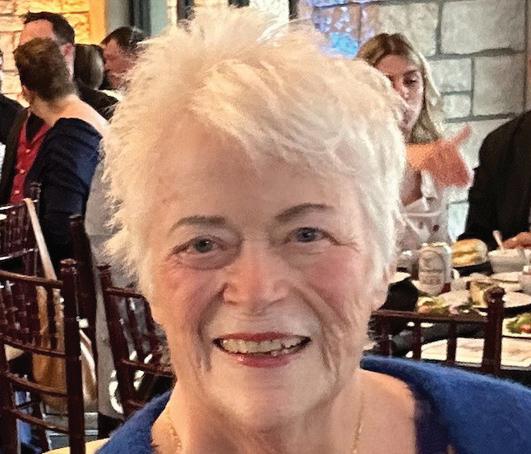



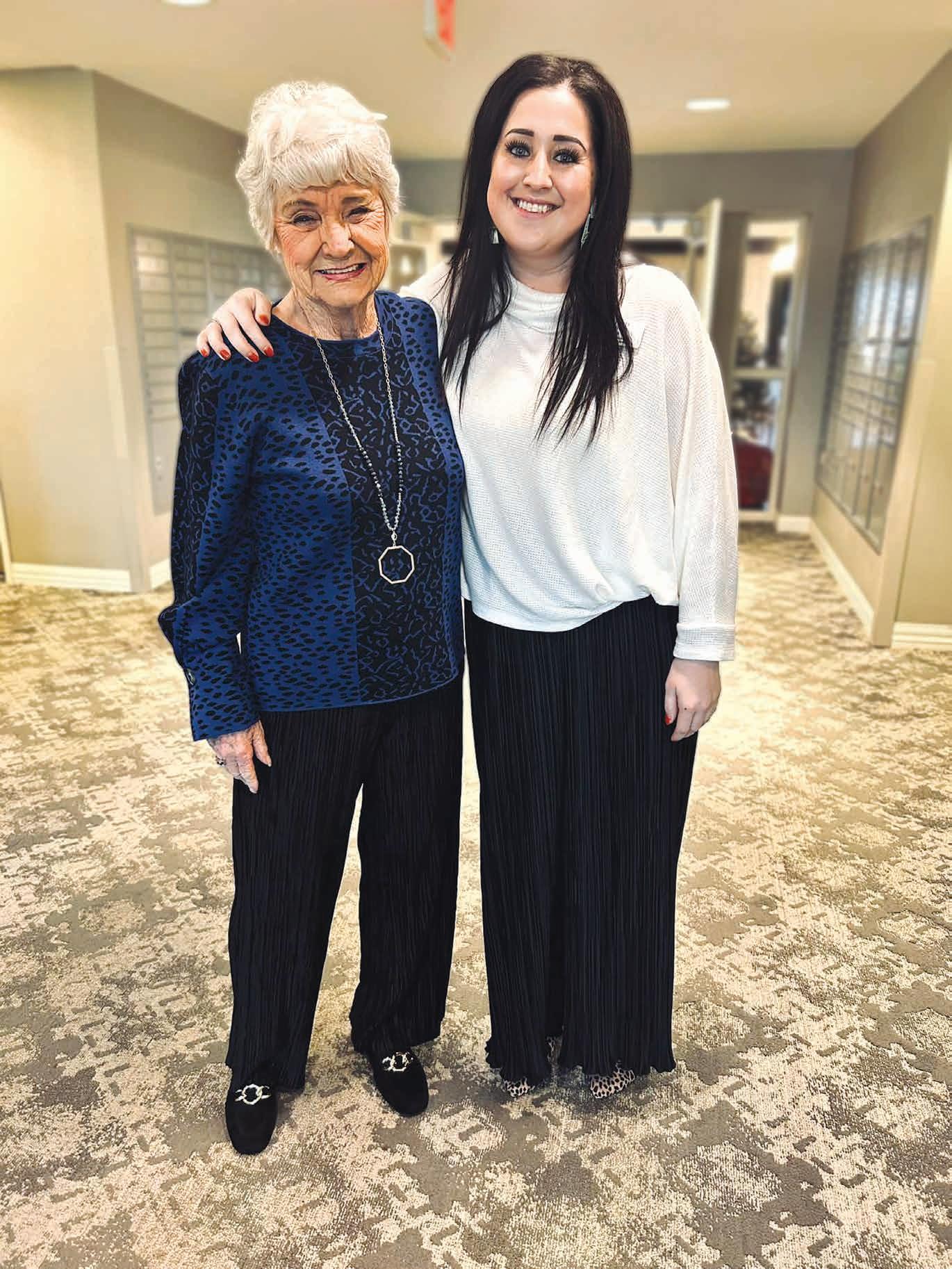
Answers from Quiz on page 11:
1. Roanoke
2. The Bermuda Triangle
3. Great Pyramids
4. Holy Grail
5. Stonehenge
6. Jack the Ripper
7. The Shroud of Turin
8. Atlantis
9. The Mary Celeste
10. Easter Island
Donate at least $50 to The Active Age, and you could win a family membership to Botanica. The Active Age holds a drawing for a family

membership each month from among people on our Honor Roll list of donors. This month's winner is John Offerman.
Donations may be made by calling 316-942-5385; through our website, theactiveage.com; by mail to The Active Age, 125 S. West St., Suite 105, Wichita, KS, 67213; or in person.




Dear Editor,
In a recent Kansas News Service story on Sen. Roger Marshall’s appearance at a town hall meeting in Oakley, Kan. (pop. 1,982), a board member with the local nursing home said he’d hoped to hear about issues “affecting nursing homes right now. Rural hospitals are hurting but all people wanted to do was scream at the senator.”
The board member’s concerns are valid and deeply troubling. Cuts in Medicaid spending will be devastating. Medicaid is the backbone of longterm care in Kansas; 57 percent of the state’s nursing home residents rely on Medicaid for their care. These are frail elders whose estates have been depleted. They have no money.
Medicaid reimbursement rates are, at best, break-even. They’re not ‘profit centers.’ Even a small reduction in rates will push many rural facilities
to the brink of closure. Quality of care, too, is sure to suffer.
Medicare, unfortunately, does not cover nursing home care.
Rural families will be left with no choice but to move their loved ones far from home to receive the care they need and deserve. Already, eight of the state’s 105 counites are without a nursing home; at least 40 have only one.
National surveys have found that a fourth of the nursing homes in Kansas are providing sub-standard care, usually due to inadequate staffing. Recruiting and retaining nurses and healthcare staff in small towns is critical.
The board member would do well to consider what’ll happen when

DOGE figures out that Medicaid is paying for care that often falls short of federal standards.
Lawmakers on both the state and national levels have a responsibility to ensure stable Medicaid funding to keep existing facilities open while, at the same time, investing in community-


based services that offer lower-cost, in-home care options that allow people to remain in their communities.
- Dave Ranney Dave Ranney is a retired newspaper reporter and editor. He lives in Lawrence, Kansas.




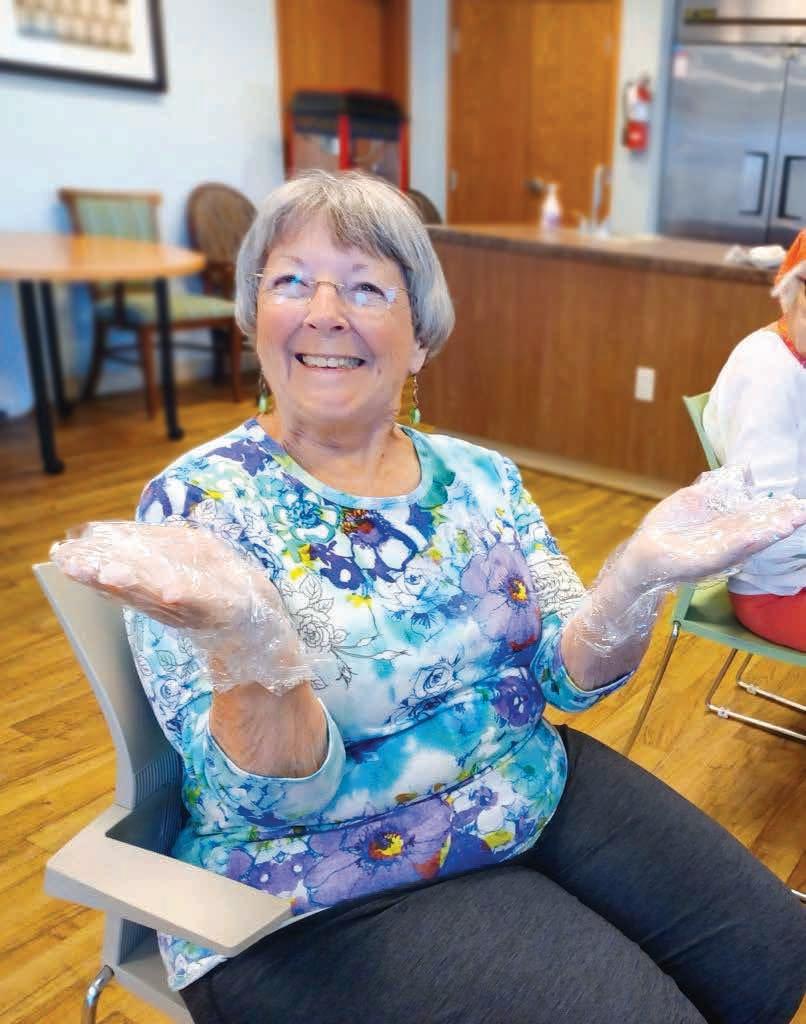




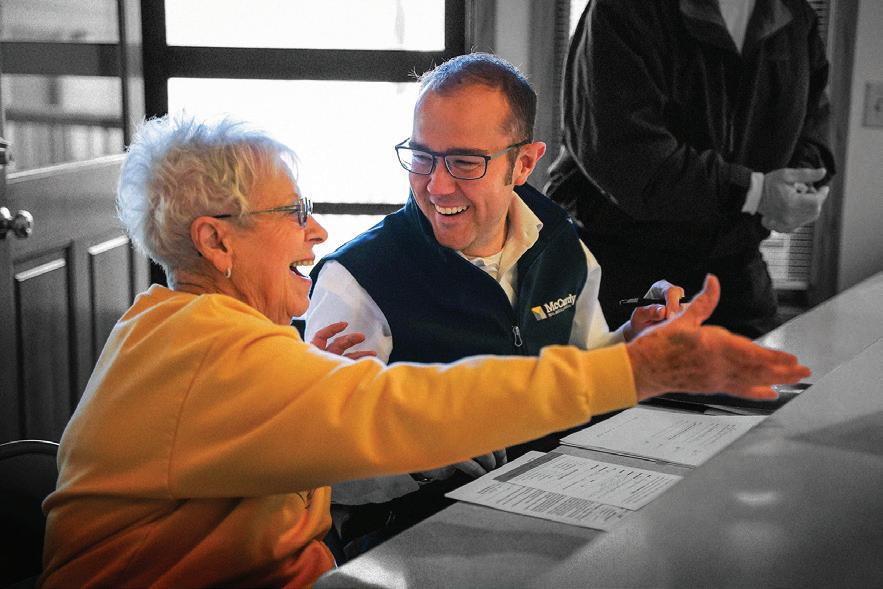

By Jim Mason
If you were thinking about getting married, would you consider having your ceremony broadcast on the radio nationwide? And held on a grandly decorated stage in the Miller Theater or Central Riverside Park with thousands in attendance? Between 1930 and 1941, that was an option for one lucky couple here in Wichita. It was called a Radio Wedding, and it was a charming highlight of the Depression years.
To attract hopeful entrants and help allay any jitters that getting married with such fanfare might cause, the organizers reached out to downtown merchants to donate gifts for the couple, which they did in abundance. These were listed in detail in the paper, sometimes with a photo of the smiling recipient. A complimentary stay in the bridal suite of a local hotel was provided to the newlyweds. And, for a couple years, they were whisked away in a spiffy Braniff airplane for a honeymoon at a Chicago hotel.
The Wichita Eagle and radio station KFH came up with this idea in early 1930. It would, of course, drive sales for both entities as well as the businesses donating gifts, but it was also a way to spread joy in a dark time. There had been a few “radio weddings” elsewhere in the 1920s, but the ones here would exceed those by far.
The first announcement in the Eagle was on the front page of the May 24, 1930, edition. The ceremony that first year would be held in the KFH studio on June 2. Mendelssohn’s wedding march would be played on a pipe organ, the ceremony would be presided over by “a well-known pastor,” and upon its conclusion the lucky couple “will find themselves literally showered with wedding gifts from the merchants of Wichita. Everything which a bride could wish for her wedding will be included.”
Couples were asked to apply to the Eagle office and their names would be kept confidential. Only the lucky winners would be announced to the public.
On Monday evening June 2, 1930, Raymond Bumgarner and Evelyn
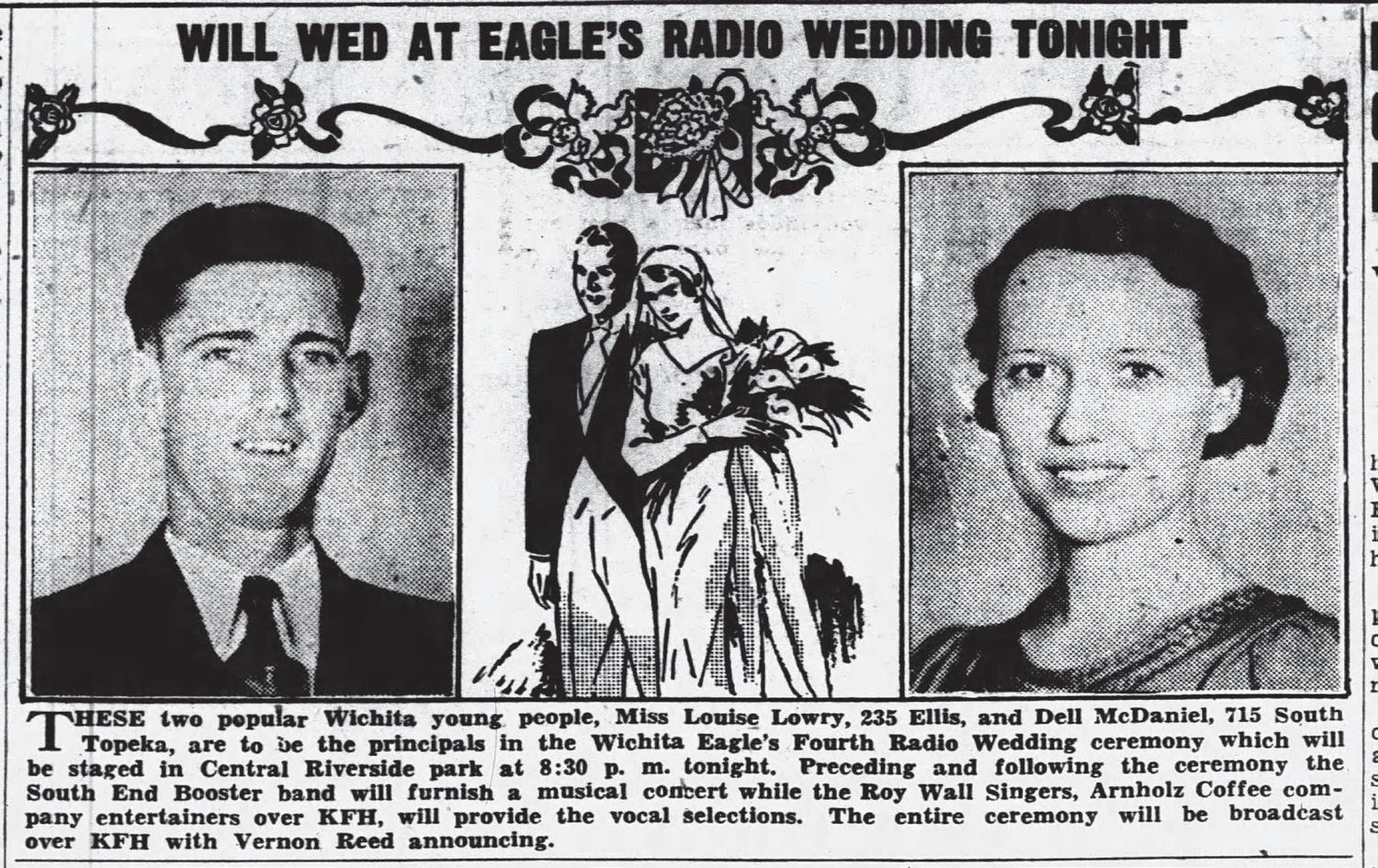
Stonebraker said “I do” into the KFH microphone, under the direction of Rev. L. Morgan Chambers of St. Paul’s Methodist Episcopal church. Preceding the ceremony, the Vollmer sisters sang “At Dawning,” Don Smith sang “Ah Sweet Mystery of Life” and Sue Webb Fulton sang “I Love You Truly.” The Downing Mortuary organ, under the able fingers of Leah Allender, and with the accompaniment of the Vollmer sisters, softly rendered “Oh Promise Me” during the ceremony. An informal reception was held afterwards at the studio, and then the newlyweds were off to spend the night in the Hotel Lassen bridal suite. The following day, they had the use of a Checker Cab to drive around downtown to pick up their gifts donated by various merchants. The list of gifts took up several column inches in the Eagle.
The second Radio Wedding upped the ante by moving the ceremony to the Miller Theater, then located at 115 N. Broadway. Wiley Film Lab, at 305 E. Kellogg, made a movie of the event and presented it to the couple afterwards. Roy Cato played the massive Miller pipe organ as Raymond Dutton and Ethel Giggy became husband and wife. Rev. J. Henry Hornung of College Hill Congregational church officiated. (The couple each year chose the officiant.)
I cannot find mention of a Radio Wedding in 1932 or 1933, but another was held at 7:30 p.m. on May 31, 1934, this time in Central


Central Riverside Park, above. A crowd of 15,000 attended.
Riverside Park. In lieu of an organ, the Russell Lowe Orchestra rendered the Wedding March. An estimated 8,000 people attended, so many that the Park Department was only able to seat about half of them. As Ralph Jayne and the former Camille Miller left the stage, the audience, knowing they could not all extend personal congratulations, broke out into raucous applause. Rather than the Lassen, this time the couple was given the bridal suite at the brand-new Allis Hotel.
In 1935, Dell McDaniel and Louise Lowry were also married in Central Riverside Park. This time the crowd was estimated at 15,000. An elaborate cake was provided by Wolf Bakery. They were driven away to their new home on South Main in a new Hudson provided by Mosbacher Motors.
Then 1936 saw the fifth Radio Wedding, again held at Central Riverside Park. Prior to the event, the Eagle published a photo of 2-yearold Sonny Bumgarner, the first child of the first radio wedding couple, establishing the long-term merit of the event. William Turpin and Margaret Scott exchanged vows on June 1, accompanied by music from a Hammond electric organ. A blue Pontiac sedan took the Turpins to the Lassen Hotel afterwards to spend the night in the bridal suite. According to the paper, as the happy couple drove off, the others in attendance would “reenter the ordinary walks of life after a brief, glorious respite from the cares of
the day.” After their wedding breakfast, the Turpins took a “honeymoon hop” to the Hotel Sherman in Chicago on Braniff Airways, all courtesy the Eagle.
Gus Barton and Virginia Eilerts exchanged vows May 31, 1937, in Central Riverside Park. Once again, the Eagle flew them to Chicago for their honeymoon.
The event moved back to the Miller in 1938, where James Crocker married Alta Taylor on May 30. Their Eagle-provided honeymoon was at the Elms Hotel in Excelsior Springs, Mo. Central Riverside Park hosted the next three Radio Weddings: Robert Harrison and Nellora Bish on May 30, 1939, William Rutschman and Lois Maninger on May 31, 1940, and Frank Moore and Irene Black on May 30, 1941.
The 1941 wedding was the last. While the events continued to draw thousands of attendees, the organizers may perhaps have been thinking the novelty and appeal were wearing thin. But, other events in the Pacific and Europe later that year probably convinced the Eagle and KFH that it would be appropriate to focus attention elsewhere. However, for the wedded couples, their families, friends and all who enjoyed attending the ceremonies, the Radio Weddings were no doubt a very pleasant memory.
Jim Mason writes frequently about Wichita history. He can be contacted at jemason53@gmail.com

Dear Savvy Senior,
What can you tell me about reverse mortgages? When my husband passed away last year, my income dropped almost in half, and I’ve been struggling to keep up with my monthly living expenses.
Senior Homeowner
Dear Senior,
For retirees who own their home and want to stay living there, but could use some extra cash, a reverse mortgage is a viable financial tool, but there’s a lot to know and consider to be sure it’s a good option for you.
Let’s start with the basics.
A reverse mortgage is a unique type of loan that allows older homeowners to borrow money against the equity in their house (or condo) that doesn’t have to be repaid until the homeowner dies, sells the house or moves out for at least 12 months. At that point, you or your heirs will have to pay back the loan plus accrued interest and fees (usually by selling the home), but you will never owe more than the value of your home.
It’s also important to understand that with a reverse mortgage, you, not the bank, own the house, so you’re still required to pay your property taxes, homeowners’ insurance and upkeep. Not paying them can result in foreclosure.
To be eligible, you must be 62 years of age or older, have at least 50 percent equity in your home, and currently be living there.
You will also need to undergo a financial assessment to determine whether you can afford to continue paying your property taxes and insurance. Depending on your financial situation, you may be required to put part of your loan into an escrow account to pay future bills. If the financial assessment finds that you cannot pay your insurance and taxes and have enough cash left to live on, you’ll be denied.
Loan details
More than 90 percent of all reverse mortgages offered are Home Equity Conversion Mortgages (HECM), which are FHA insured and offered through private mortgage lenders and banks. HECM’s have home value limits that vary by county but cannot exceed $1,209,750 in 2025.
How much you can actually get through a reverse mortgage depends on your age (the older you are the more you can get), your home’s value and the prevailing interest rates. Generally, most people can borrow somewhere between 40 and 60 percent of the home’s value. To estimate how much you can borrow, use the reverse mortgage calculator at


ReverseMortgage.org.
To receive your money, you can opt for a lump sum, a line of credit, regular monthly checks or a combination of these.
But be aware the reverse mortgages aren’t cheap. You’ll have to pay an origination fee, which is the greater of $2,500 or 2 percent of the first $200,000 of your home’s value plus 1 percent of the amount over $200,000. HECM origination fees are capped at $6,000.
You’ll also be charged an initial mortgage insurance premium, which is 2 percent of the loan amount, along with closing costs that will likely run several thousand dollars. Any amount you borrow, including these fees and insurance, accrues interest, which means your debt grows over time.
To learn more, see the National Council on Aging’s online booklet “Use Your Home to Stay at Home” at NCOA.org/article/use-your-home-tostay-at-home
Also, be aware that because reverse mortgages are complex loans, all borrowers are required to get counseling through a HUD approved independent counseling agency before taking one out. Most agencies charge between $125 and $200. To locate one near you, visit Go.usa.gov/v2H, or call 800-569-4287.
Other options
If a reverse mortgage doesn’t suit you, you could also tap your home equity by getting a regular home equity loan or line of credit. This type of borrowing requires you to make payments, and lenders can freeze or lower limits on lines of credit, but the borrowing costs are much lower. Or you could also sell your home and move somewhere cheaper.
Dear Savvy Senior,
At age 70, I’ve become more and more forgetful lately and am concerned it may be an early sign of dementia. Are there any memory screening tools or services that you can recommend to help me gauge my problem without going to a neurologist?
Forgetful Frank

worry about memory lapses as they get older fearing it may be the first signs of Alzheimer’s disease or some other type of dementia. To get some insight on the seriousness of your problem, here are some tips and resources you can turn to.
Warning signs
As we grow older, some memory difficulties — such as forgetting names or misplacing items from time to time — are associated with normal aging. But the symptoms of dementia are much more than simple memory lapses.
While symptoms can vary greatly, people with dementia may have problems with short-term memory, keeping track of a purse or wallet, paying bills, planning and preparing meals, remembering appointments or traveling out of the neighborhood.
To help you recognize the difference between typical age-related memory loss and a more serious problem, the Alzheimer’s Association provides a list of 10 warning signs that you can assess at 10signs.org
They also provide information including the signs and symptoms on other conditions that can cause dementia like vascular dementia, Lewy body dementia, frontotemporal dementia, Parkinson’s disease, Huntington’s disease, chronic traumatic encephalopathy and others See ALZ. org/dementia
Memory screening
A great resource and first step to help you get a handle on your memory problem is the Alzheimer’s Foundation of America, which offers a National Memory Screening Program. This is a free, confidential, face-to-face memory screening done virtually in real-time that takes about 10 to 15 minutes to complete and consists of questions and/or tasks to evaluate your memory status. Once the screening is complete, the screener will review the results with you.
Available to everyone, these
memory screenings are done daily Monday through Friday, and are given by doctors, nurse practitioners, psychologists, social workers or other healthcare professionals across the country.
A smart phone, computer, tablet or any other device with a webcam and Internet capability is all that’s needed. Appointments can be requested online at ALZFDN.org/memory-screening or by calling 866-232-8484.
It’s also important to know that this screening is not a diagnosis of any particular condition but can indicate whether you should see your doctor for more extensive assessment.
See your doctor
If you find that you need further evaluation, make an appointment with your primary care doctor for a cognitive checkup and medical examination. Depending on what’s found, you may be referred to a geriatrician or neurologist who specializes in diagnosing and treating memory loss or Alzheimer’s disease.
Keep in mind that even if you are experiencing some memory problems, it doesn’t necessarily mean you have dementia. Many memory problems are brought on by other factors like stress, depression, thyroid disease, side effects of medications, sleep disorders, vitamin deficiencies and other medical conditions. And by treating these conditions, the doctor can reduce or eliminate the problem.
Send your senior questions to: Savvy Senior, P.O. Box 5443, Norman, OK 73070, or visit SavvySenior.org. Jim Miller is a contributor to the NBC Today show and author of “The Savvy Senior” book.
For more Savvy Senior tips, visit theactiveage.com. Topics for March include:
• How to Replace Important Lost Documents
• Are You at Risk for Kidney Disease?
Dear Frank,
Many older adults, like yourself,

BEL AIRE
7651 E Central Park Ave 744-2700, ext 304 www.belaireks.org
BENTLEY/EAGLE 504 W Sterling, 796-0027
CHENEY 516 Main, 542-3721
CLEARWATER 921 E Janet, 584-2332
DERBY 611 N Mulberry Rd, 788-0223 www.derbyks.com
DOWNTOWN
200 S Walnut, 267-0197 www.seniorservicesofwichita.org
EDGEMOOR 5815 E 9th, 688-9392
ANDOVER
NOTE: AGING PROJECTS, INC. PLANNED TO MAKE FRIENDSHIP MEALS AVAILABLE THROUGH PICKUP AND DELIVERY IF NECESSARY. FOR INFORMATION, CONTACT YOUR LOCAL MEAL SITE OR CALL 316-686-0074
GARDEN PLAIN 1006 N Main, 535-1155
GODDARD 122 N Main, 785-398-1255
HAYSVILLE 160 E Karla, 529-5903
KECHI Kechi City Building, 744-0217, 744-1271
LA FAMILIA 841 W 21st, 267-1700
LINWOOD 1901 S Kansas, 263-3703
MCADAMS GOLDEN AGE 1329 E 16th, 337-9222
MT HOPE 105 S Ohio, 667-8956
MULVANE 632 E Mulvane, 777-4813
NORTHEAST 2121 E 21st, 269-4444
OAKLAWN 2937 Oaklawn Dr, 524-7545
ORCHARD PARK 4808 W 9th, 942-2293
PARK CITY 6100 N Hydraulic, 744-1199
VALLY CENTER COMMUNITY CENTER 314 E Clay, 755-7350
410 Lioba Dr, 733-4441 www.andoverks.com
AUGUSTA 640 Osage, 775-1189
BENTON Lion’s Community Bldg, S Main St CASSODAY Cassoday Senior Center 133 S. Washington, 620-735-4538
April 2
10:30 am Wichita Art Museum 1400 W. Museum Blvd., $2 admission. Anila Quayyum Agha: Interwoven 1:30 pm Museum of World Treasures 835 E. 1st St. Biodiversity of the Planet, and a Paleontological Murder Mystery.
April 9
10 am Sedgwick County Zoo, 5555 Zoo Blvd. (316) 266-8213, $4
Where have you fin all my life?
1:30 pm Advanced Learning Library, 711 W, 2nd, (316) 2618500, Free. Celebrate Big Read with Music For Everyone.
April 16
10 am Ulrich Museum of Art, 1845 Exhibition Panel: EMS,
Derby Sr Center, 611 Mulberry. 3rd Tuesday 7pm-9:30 pm. El Dorado Jam & Dance, Senior Center, 210 E. 2nd.
DOUGLASS 124 W 4th, 746-3227
EL DORADO 210 E 2nd, 321-0142 LEON 112 S Main, 745-9200 or 742-9905
ROSE HILL 207 E Silknitter, 776-0170
WSU Engineering, & ADCI.
1:30 pm Great Plains Nature Center, 6232 E 29th St N. Walking in Nature: Can You Hear What the Birds Are Saying?
April 23
10 am Wichita-Sedgwick County Historical Museum, 204 S. Main. American Portraiture.
1:30 pm Mid American All-Indian museum. 650 N Seneca (316) 3503340, $2 + tax admission; free for MAAIM members. Info not available.
April 30
10am The Kansas African American Museum, 601 N Water. $3. Info unavailable. 1:30 pm Old Cowtown Museum. 1865 Museum Blvd $2 + tax; bers. Info unavailable
Linwood Golden Age, 1901 S Kansas. Every Saturday 7pm-9:30pm. Call Jim 316-945-9451
Minisa Golden Age, 704 W 13th. Info 617-2560. Every Thursday 7pm9:30pm. Call Rita 316-364-1702 Oaklawn Activity Center, 4904 S. Clifton. Contra Dance1st Saturday of each month. 7pm-9pm. Call Amanda at 316-361-6863. Orchard Park Golden Age, 4808 W 9th. Every Friday 7pm-9:30pm. Call Casey 316-706-7464
Prairie Wind Dancers: Plymouth Congregational Church, 202 N Clifton. Joyce, 683-1122. Village Steppers Square Dance, Oaklawn Activity Center, 4904 S Clifton. 2nd and 4th Saturday of each month September through May 7:30 - 10:00 pm. Info: Mike Huddleson 316-650-2469 Westside Steppers Square Dance, 1st and 3rd Sunday of each month, 6-8:30 p.m., West Heights United Methodist (entrance "D"), 745 N. Westlink Ave. Info: Sheldon Lawrence (316) 648-7590.
TOWANDA 317 Main, 316-536-8999 Open 10:30 am-5 pm Mon, Wed, Fri
WHITEWATER Legion Hall, 108 E Topeka
BURRTON 124 N Burrton, 620-463-3225
HALSTEAD 523 Poplar, 835-2283
HESSTON Randall & Main, 620-327-5099 www.hesstonseniorcenter.com
NEWTON AREA SENIOR CENTER 122 E 6th, Newton, 283-2222 www.newtonseniorcenter.com
SEDGWICK 107 W. Fifth, 772-0393
Sedgwick Co Transportation, 660-5150 or 1-800-367-7298. Information: 8 am-5 pm, Mon-Fri; closed most holidays. www. sedgwickcounty.org/aging.
Weekday transportation in El Dorado, Augusta and Andover. Rides to Wichita on Wed, Thu. Information: Augusta, 775-0500; El Dorado, 322-4321; toll free, 1-800-2793655. 48-hr notice required.
Transportation reservations or information: 316-284-6802 or 1-866-6806802. Round-trip: $8 Newton (wheelchair only), $12 Harvey County, $20 outside Harvey County. AVI to Newton: Tue, 12:304:30 pm from Burrton, Sedgwick, Halstead, Hesston, Walton.
Aging Projects serves a hot, nutritious meal weekdays for persons 60 and older in Sedgwick, Harvey and Butler counties. Reservations are necessary. For locations and reservations, call 316-686-0074
WEEK OF APRIL 1
Tue: Swedish Ham Balls, baked potato, green beans, ambrosia fruit salad.
Wed: Cheesy Mac Chili, corn, peaches, corn muffin/butter.
Thu: Glazed chicken, creamy rice, carrots, blushing pears, wheat roll/butter.
Fri: Tuna Salad sandwich, macaroni salad, three bean salad, applesauce.
WEEK OF APRIL 7
Mon: Tomato soup, pimento cheese sandwich, mixed fruit.
Tue: Bierock casserole, harvest beets, blushing pears.
Wed: Spaghetti w/ meat sauce, green salad, bananas in orange juice, garlic bread.
Thu: Creamed chicken over biscuit, vegetable medley, peaches.
Fri: Beef tips over rice, mixed vegetables, glazed cherries.
WEEK OF APRIL 14
Mon: Spaghetti w/ meat sauce, mixed vegetables, pears, garlic bread stick..
Tue: Chicken fajita salad, mexican rice, peaches, corn chips.
Wed: Sterling's Ham & Egg Casserole, capri vegetable blend, applesauce, bran muffin..
Thu: Pork cutlet, mashed potatoes, carrots, pineapples.
Fri: Salmon patties, mac & cheese, green beans, peaches.
WEEK OF APRIL 21
Mon:Shepherds pie, glazed carrots, applesauce, cheddar dill bread.
Tue: Scalloped pot w/ ham, beets, ambrosia fruit salad, wheat roll/butter.
Wed: Creamed chicken over biscuit, peas & carrots, apricots.
Thu: Cheeseburger/bun, potato wedges, pears, yellow cake.
Fri: HOLIDAY.
WEEK OF APRIL 28
Mon:Calico beef & beans, peas, mixed fruit, corn muffin.
Tue: Chicken pot pie, parslied carrots, peaches.
Wed: Cranberry meatballs, refried beans, brown rice, cauliflower w/cheese, applesauce .
* Milk or grape juice is served with all meals. Meals fall within the following ranges: Calories 650-750; protein 25 grams or higher; fat 20 to 30 percent of calories; calcium 400 mg or higher; sodium 1,000 grams or less; fiber 9 grams or higher.
FUNDING MADE POSSIBLE THROUGH THE OLDER AMERICANS ACT, KDADS AND CENTRAL PLAINS AREA AGENCY ON AGING
Lic. #1303
Single Plot – Resthaven Cemetery – Garden of the Cross 46A1 $5000 OBO Email: arkpegram@cox.net OR 479-644-6680 Serious inquires only
Single burial plot in Garden of Gethsemane at White Chapel. Asking $2,000. 316-644-6149
6 plots and 4 vaults at White Chapel Memorial Gardens. Two plots and 2 vaults in Valor Lot 23A space 3&4, granite base, VA bronze Headstone & bronze vase. Value $10,500,Sell $5,000 OBO. Four Plots in Sermon on the Mount. Lot 326A spaces 1,2,3,4 with 2 Vaults, 1 Headstone. Value $13,490,Sell $7,500 OBO. 316-208-3248 Larry Harmon
Resthaven, 2 side by side plots Located in Garden of the Cross. $4000 each seller pays transfer fee. 316-734-3292
White Chapel, Memorial Gardens, Garden of Nativity, Section 288D, spaces 2, 3 and 4. Value $6,000. Sell $3,500 OBO. Seller pays transfer fee. 785-259-2224. LEAVE A MESSAGE.
Two plots at Lakeveiw Memorial Gardens. $2,500 each. Contact me at deny67801@yahoo.com.
Two burial plots at $3,400 each. White Chapel Memorial Gardens in Wichita, Garden of Chrispur, Lot 163B, spaces 3 & 4. Contact Keith Gurley at kgurley@uab.edu or 913-449-0422.
HEAVENLY RESTING PLACE at Lakeview Gardens Everlasting Life. Lot 53 Spaces 3&4. Retail $3,695 each, Selling both for $3,500 OBO. Seller pays transfer fee. Call 316-393-6054
Resthaven Garden of Prayer. Lot 11A, Plots 1&2. $5,000 plus transfer fee buys both plots. 316-978-0743
Single plot at Ascension or Resthaven cemetary at a fair price. Open to other single plots. Larry Gass 3162045699 or larry@psijobs.com
(2)cemetery plots in Lakeview cemetery In "Garden of the Apostles " lot 57 1&2 $2,850 each OBO. Buyer transfer fee 903-348-1636
2 plots Resthaven Gardens, Garden of Love, Section 20, lot 106-D, 1 and 2. Retails $20,975. Includes 2 underground vaults, 1 bronze headstone. Sell for $9,975. Buyer pays transfer fee. 316-680-6350.
Two plots at Resthaven, Garden of the Cross, valued at $11,000 asking $8,000 for both.Seller pays transfer fee. 316-993-6105

Resthaven, 2 side by side plots Located in Garden of the Cross. $4000 each seller pays transfer fee. 316-734-3292
2 lots at Resthaven & Gardens of Memory, Sermon on the Mount, lot 123d, spaces 3&4. $10,900 for both. 817-905-2277- Pete Thomas

: In-home, Sedgwick & surrounding counties
thick toe nails, ingrown & callous care
Private Duty Aide with light house keeping. Availability evenings and weekends. References upon request. Cynthia CNA/HHA 316-992-6711
29 YR EXPERIENCED LICENSED HOME HEALTH AIDE
Providing rides to Dr etc. Home Health Care Specializing in Dementia/Diabetes/Hospice. Ref avail. Kay 316-882-9127
Caregivers for Elderly. Personal care assistance, bathing, meals, light housekeeping. Full or part time. 316-390-9526
Experienced
539-900-3695
Gutters, Windows, Storm damage repair, Senior Discount. 316-312-2177
Molina Electric - Wichita Lic #1364 Comm. or Residential wiring. Service calls. New electric service. Troubleshooting. Cell 316-461-2199.
Handyman RX- We have a remedy for almost all of your “fix-it” jobs! Light carpentry including deck and fence repair, indoor misc. repairs and installations, lawn mowing “LG or SM”, Yard & Garage clean-up, mulching, hauling miscellaneous,hauling dirt, sand, and rock/gravel upto 3.5 tons. What you need done I can probably handle. Call for HELP! Brian 316-217-0882. Free Estimates
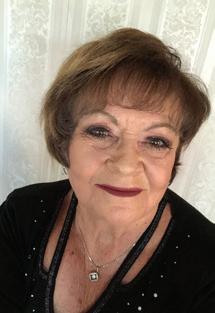
Cowboy Construction Remodeling, siding, decks, fences, windows, doors and more. 20 years locally owned. Free estimates. Senior discounts. Todd Wenzel 316-393-4488
MOBILE GLASS REPAIR
Windows * Patio * Doors
Windows won’t stay up, Crank Outs, Patio Rollers and Lock Latches, Morris Glass & Service, 316-946-0745
ALL AMERICAN CONSTRUCTION &












Please check your ad carefully and check off the applicable boxes and initial to indicate your acceptance ____ Check




By Chance Swaim
The Wichita Eagle
The former downtown library near Century II could become the Wichita Police Department’s new headquarters. At least, that’s the idea floated by Wichita Mayor Lily Wu at her first State of the City address last month.
She also suggested that once the move is complete, Sedgwick County government could occupy the three floors the department now uses in City Hall. The county has been looking for a new, more permanent office space since it moved out of the Sedgwick County Courthouse and into the Ruffin building downtown.
“In addition to saving taxpayer money, moving the county into city hall aligns nicely with the goal of shared services, improving government efficiency, fostering stronger collaboration and easier coordination between city and county departments,” Wu said.
The two governments have been in talks to consolidate several services in the past year in an attempt to cut down on spending and reduce property taxes.
Sedgwick County Commissioner Jim Howell, who attended Sunday’s speech, was not supportive of the mayor’s idea. “This is the front door of our city. This is a beautiful building,” Howell said. “I’m not sure that a police
headquarters, in my opinion, is the most welcoming thing you see. My personal opinion is that’s just not the right fit. “I know the conversations out there, but you know what? We’ve been looking for a building now for a better part of a decade, and I think we’re getting closer and closer to finding some solutions that are, in my opinion, probably less expensive than the idea that was floated today.” Wu did not say what renovations would be needed for the building or how much her plan could cost. On Monday, Sedgwick County Manager Tom Stolz confirmed that there has been some talk about the county moving into City Hall. It’s

among options the county is considering, but only if space is freed up at the city building. “I’ve not had discussions with city management on this, but we have politically talked over here,” Stolz said. “I’ve talked with commissioners about this to some degree, so I don’t think anyone was surprised when the mayor put it out there.
It’s illegal to own a pet raccoon in Kansas. One man is trying to change that
By Rose Conlon KMUW
For the past four years, Lenexa resident Stephen Kaspar has been feeding and training wild raccoons that wander onto his property.
“It is the highlight of my life,” he said during a legislative hearing on Monday. “These are the things that you do when you become an empty nester. You start playing with raccoons in the backyard.”
But it’s against Kansas law to own a pet raccoon. That’s why Kaspar is urging state lawmakers to pass a bill that would legalize pet ownership of raccoons.
Owners would be required to obtain a raccoon ownership permit, complete educational training and vaccinate their raccoons for rabies and other diseases. They’d have to provide raccoons with their own room or enclosure, a measure Kaspar said is designed to ensure people provide proper care and enrichment to the animals.
“It’s not supposed to be easy — not everybody should just get a permit,” he said. “This is a commitment.”
Kaspar said 20 other states have already legalized pet raccoon ownership. He said the bill text, which he suggested based on other states’ legislation, gives Kansas an opportunity to set a gold standard for pet raccoon ownership.
Rep. Joe Seiwert, a Republican from Pretty Prairie, testified in support of the proposal.
“I was a poor little farm kid back in the ’50s, and we had a lot of wild pets, and actually a little coyote we named Wiley after a famous movie star,” he said.
Seiwert’s legislative intern, Charles Simpson, delivered the remainder of Seiwert’s testimony.

“I strongly believe that this bill strikes an essential balance between allowing individual freedom to keep raccoons while ensuring their health and safety, as well as the well-being of the community,” Simpson read.
Seiwert said he decided to advocate for the bill because he believes some Kansans might already have pet raccoons, unknowingly breaking state law.
“A lot of people have them and don’t realize that they’re not legal pets,” he said.
But some at the hearing expressed concern about the potential for the bill to fuel the spread of infectious diseases like rabies.
“That is a major human health concern when it comes to pet ownership of raccoons, primarily because there is not a label vaccine for rabies in raccoons,” said Erin Petro, state public health veterinarian at the Kansas Department of Health and Environment.
She said rabid raccoons in the U.S. have caused human death as recently as 2018.
Kaspar suggested limiting ownership permits to Kansans who purchase raccoons from breeders certified by the U.S. Department of Agriculture. Those raccoons, he said, have been bred in captivity since the 1960s and are genetically distinct from wild raccoons. He said there haven’t been any known instances of USDA-
bred raccoons contracting rabies.
Kyle Hamilton, an assistant revisor of statutes, said the bill in its current form does not distinguish between USDA-bred raccoons and wild raccoons. Language clarifying that distinction could be added if lawmakers decide to work the bill.
Several lawmakers appeared skeptical of the proposal, including Rep. Brooklynne Mosley, a Lawrence Democrat.
“I’m happy I never got a chance to witness my parents as empty nesters because they had my little brother in their mid-40s. So I did not have to witness ‘raccoon dad,’” she said.
She asked Kaspar about local support for his bill. He said more than 100 Kansans have signed a petition in support of the bill and estimated that he is in communication with 100 other people from around the country on TikTok who support the bill.
“There is a huge movement,” Kaspar said, noting that both Nebraska and Oklahoma have legalized raccoon pet ownership.
“Those are not great states to be comparing us to,” Mosley replied.
Eureka Republican Rep. Duane Droge, a former veterinarian, said it’s difficult to domesticate animals.
“Dogs were domesticated over hundreds and thousands of years,” he said. “You can’t domesticate in one generation.”
“I had a roommate in veterinary
school that had (a pet raccoon) that took over the refrigerator,” he added. “It would hide until you opened the refrigerator door, and it would take over the refrigerator. You couldn't even go in the kitchen.”
It’s unclear if lawmakers will work the bill this legislative session. Lawmakers have the option of taking up bills that are introduced but not passed this year during next year’s legislative session.
A free digital copy of The Active Age is now available. The digital copy can be “flipped through” like a regular newspaper, and the type can be enlarged on your phone or computer. To have the digital version emailed to you each month, call (316) 942-5385 or email joe@theactiveage.com.


By Jennifer Youngers
April is National Volunteer Appreciation Month, a time to recognize the dedication of those who give their time to support their communities. Among these incredible individuals are the volunteers of the AmeriCorps Seniors Retired & Senior Volunteer Program (RSVP), whose contributions make a profound impact on countless lives.
In Sedgwick County, RSVP is sponsored by the Sedgwick County Department of Aging and Disabilities and provides opportunities for older adults to engage in meaningful service. Volunteers assist with projects and services such as Meals on Wheels food delivery, veterans support initiatives, setting up exhibits at local museums, providing comfort to family members during hospital visits, assisting with
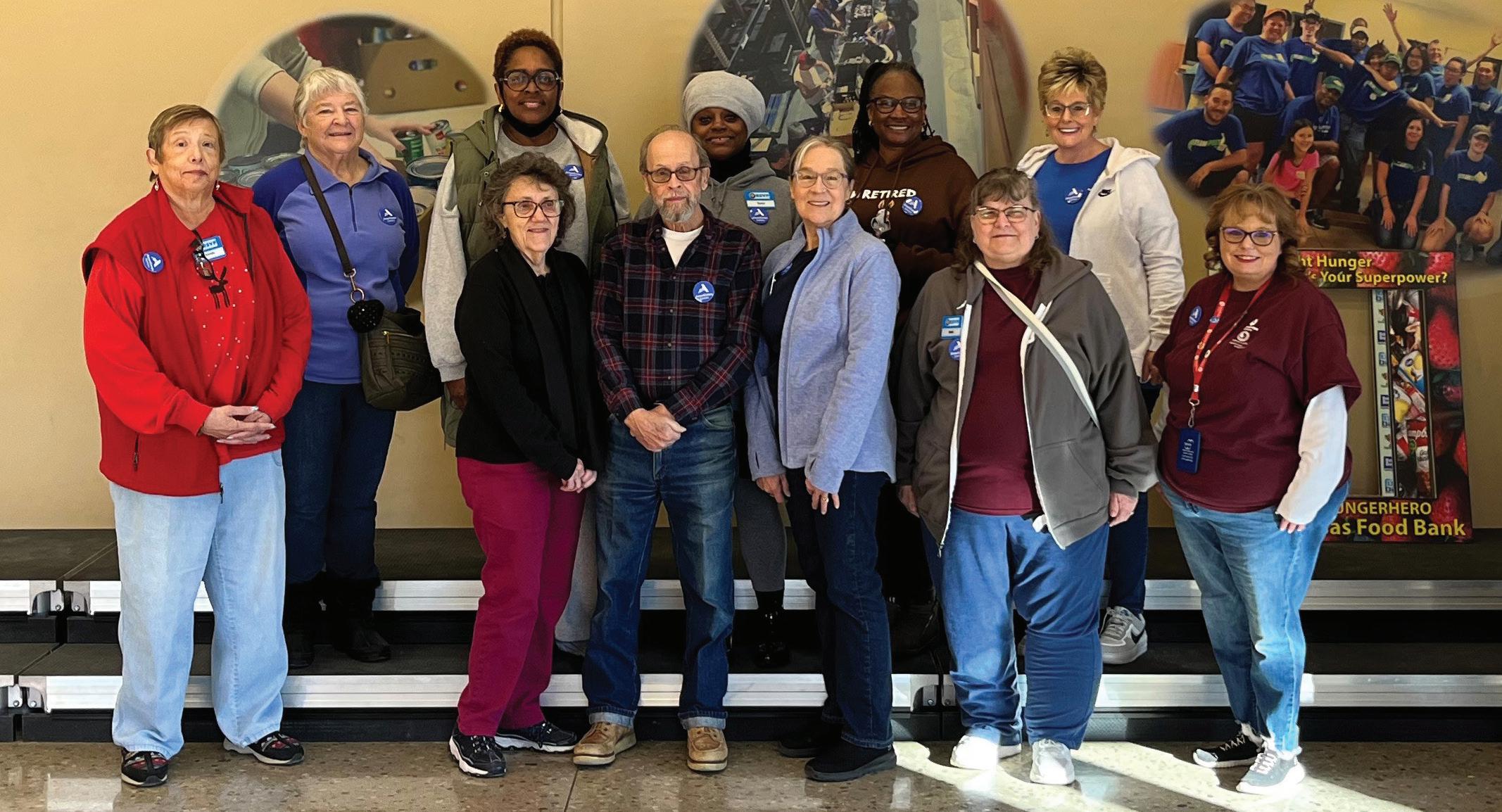

food and toy drives and more. Volunteering not only strengthens our community but also promotes a deep sense of purpose and fulfillment.
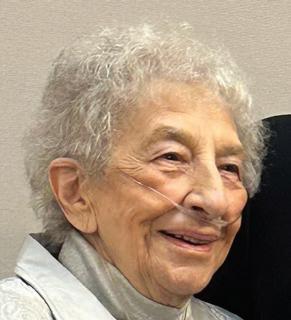
“It makes you feel good to help others in need,” Carpenter said. “With providing rescue blankets, sleeping bags, tote bags and hats for the homeless, you know you are doing your part to help other people have a little better life.”
Another volunteer, Peggy Grell, a 91-year-old Korean War veteran, has spent years giving back through RSVP. She has volunteered at the Wichita Dwight D. Eisenhower National Airport, helped feed those in need at the Lord’s Diner and supported various community initiatives. “Serving others is the American way,” Grell said. We encourage everyone to take a moment to recognize and thank RSVP volunteers for their commitment.
If you feel inspired by the work of RSVP volunteers, consider becoming
one. Opportunities are available for those looking to make a difference. To learn more, call 316-660-5120 and ask about RSVP.
Jennifer Youngers is RSVP Program Coordinator with the Sedgwick County Department of Aging and Disabilities.


By Shirley Annsun
The Prairie Pilot Club is all about volunteering and service projects. At Ability Point, we help serve lunch and bring desserts to the “Lunch Bunch.” In February, we hosted our annual Valentine Party for teens at the Wichita Children’s Home. We provide “pick me up” gifts and snacks to firefighters, dispatches and other others. Our next round will go to jail staff. We help Club Parkinson members participate in exercise activities.
The Club has two fundraisers. Our “Spring Fling” is from 10 a.m.
to 5 p.m. on April 4 and 5, and our Christmas Holiday House is in November. Both are held at Riverside Christian Church. We sell crafts and home-baked goods and snacks. A charity or group is selected to be the beneficiary of each fundraising event. We are on Facebook or you may email prairie.pilot@yahoo.com
Pilot International was founded in Macon, GA, in 1921. The Wichita club started in 1962. Our goal is to make Wichita a better place and our motto is


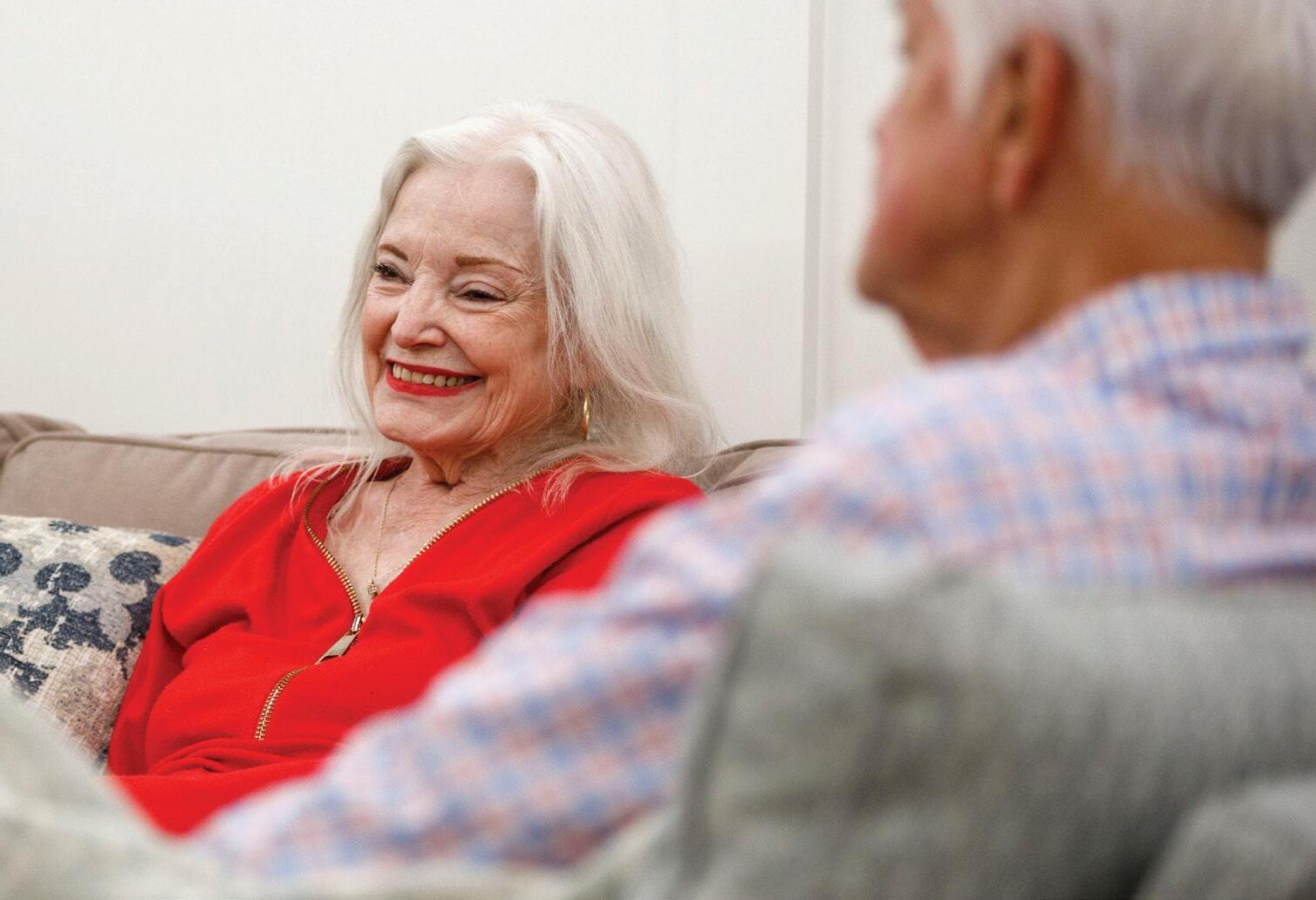

interested in joining an organization where lasting friendships are formed, community service is provided and fun is had by all.





By Sophia Best
The Sunflower
When asked by her brother what she hopes to bring into the world with her writing, Rebekah Taussig wrote, “I want my writing to meet people in that shame, to lift the veil and point to the source, to remind folks that their disabled bodies are not The Problem here, to hold up a flag that says, ‘You are not alone.’” No book lifts that veil better than “Sitting Pretty.”

Taussig's “Sitting Pretty: The View from My Ordinary Resilient Disabled Body” was chosen for Wichita’s 2025 Big Read because of how it covers
a multitude of social issues that not only affect the disability community, but everyone. It also allows people to engage in disability culture — the experiences and beliefs of those with disabilities.
“Sitting Pretty” is a witty and poignant look at disability from a grossly underrepresented point of view — the people with disabilities. Taussig talks about her life, from making magazine cutout vision boards and sleeping in the top bunk to how ableism intersects with her life.
Being a disabled woman gives her different experiences than an ablebodied woman or a disabled woman of color. Taussig comedically tells her perspective while not sharing it as “a how-to guide.”
“Sitting Pretty” gave me both
By Stefania Lugli
The Journal
The Wichita City Council voted unanimously last month to create a municipal ID, the City of Wichita ID, in an effort to lower barriers for Wichitans who lack standard documentation for a state-issued ID, such as people who are homeless. IDs will be issued at City Hall and the Multi-Agency Center, where services for the homeless are being consolidated. The ID will display a person’s name, photo, address, date of birth and ID number, making it I-9 compliant to verify an individual’s identity for employment.

Distribution is expected to start in the spring, but no exact timeline is available yet, according to city spokesperson Megan Lovely. Rollout will depend on equipment arrival and staff training.
laughs and an understanding of one woman’s journey through life and how ableism affected it, even when events and people attempted to be fully inclusive. Even at events that label themselves as inclusive, Taussig noticed they don’t have a bathroom accessible for a wheelchair user.
I thoroughly enjoyed Taussig’s “mini-memoirs” and how childhood anxieties about being different both grow and shrink as you age, like in the chapter “Feminist Pool Party.”
Taussig talks about being the only disabled girl at childhood pool parties and sleepovers, how it left her feeling alienated and begging her mother to make up an excuse for her not to go, and how that alienation followed her into adulthood.
While talking about accessibility, “Sitting Pretty” makes itself accessible

to both readers and nonreaders through snappy, entertaining vignettes. It keeps the reader wanting more, and it’s the perfect read for Wichita’s Big Read. Sophie Best is a senior at Wichita State University. This article was made available through the Wichita Journalism Collaborative.
The Wichita Journalism Collaborative will host a panel event on from 3:30 to 5 p.m. on April 23 at the Advanced Learning Library, located at 711 W. Second St. The event, titled “Housing for All,” will focus on the challenges individuals face when seeking accessible and affordable housing. More Big Read events can be found at wichitalibrary.org.



All Wichita residents 14 and above can apply for the card. The municipal ID card doesn’t grant status or authorization to work, according to assistant city attorney Nate Johnson.










